What Foreigners Discover About China That No Guidebook Mentions
24 Feb 2025China is a land of contrasts, blending ancient traditions with cutting-edge modernity. For foreigners, stepping into this vast and diverse country can be both fascinating and bewildering. From the sheer speed of technological advancement to unexpected social customs, everyday life in China often defies expectations. Whether it’s the food, work culture, or internet restrictions, China offers surprises at every turn. This guide explores the most shocking and unique aspects of life in China that foreigners encounter.
The Great Firewall and Internet Restrictions
Many foreigners are shocked by the level of internet censorship in China. Access to popular websites like Google, Facebook, Instagram, and YouTube is restricted. While VPNs can sometimes circumvent these restrictions, their reliability can be questionable and they are often blocked as well.
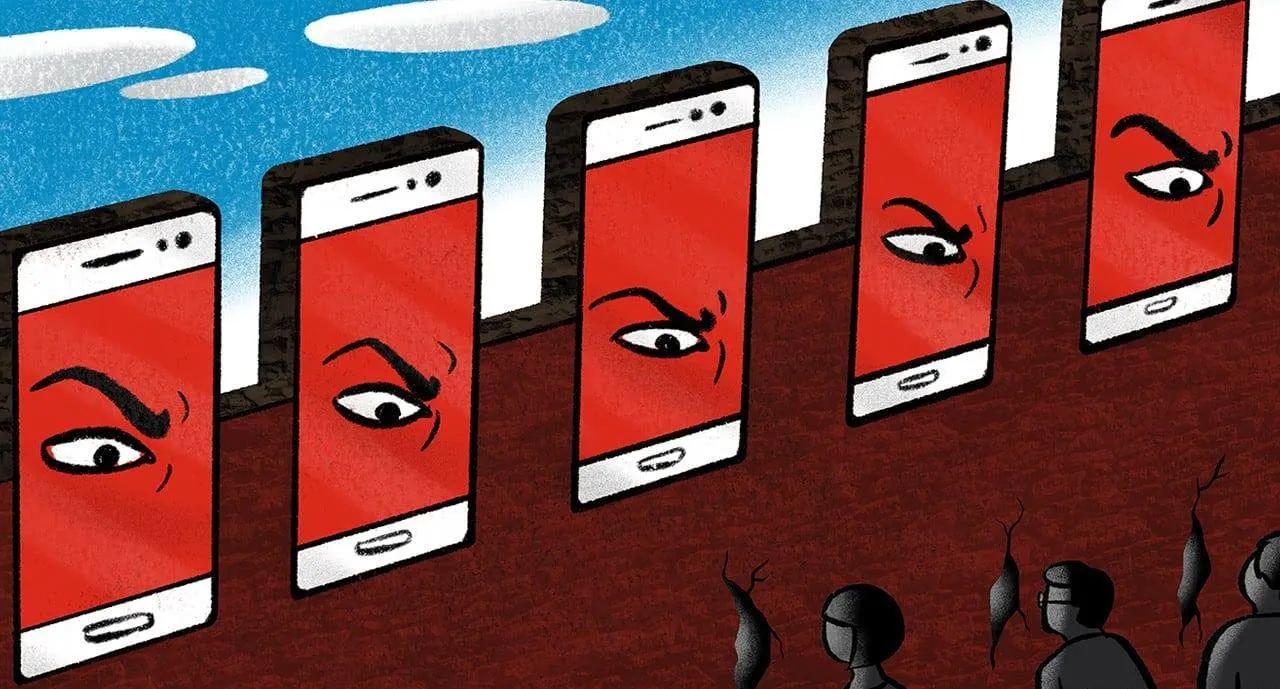
@hardcover/substack.com
It's crucial to plan ahead and consider alternative communication methods and search engines. Downloading necessary apps before arriving in China is highly recommended, and be prepared to rely more on local services and platforms. This can be a significant challenge for those accustomed to unfettered internet access.
The Sheer Scale of Everything
China's population is immense, and the scale of everything, from cities to infrastructure projects, can be truly mind-boggling. The sheer number of people in public spaces, like subways or tourist attractions, can be overwhelming for first-time visitors.

@Top 10 most crowded destinations for National Week/chinadaily.com.cn
Cities with populations exceeding millions are commonplace, and the pace of development is breathtaking. Prepare to be amazed by the scale of the infrastructure, from high-speed rail networks to massive bridges and dams. This vastness can be both awe-inspiring and slightly intimidating, a testament to China's rapid growth and development.
The Ubiquitous Squat Toilet
Prepare to be surprised by the prevalence of squat toilets, especially in older establishments and public restrooms outside major tourist areas. While Western-style toilets are becoming more common, the squat toilet remains a fixture of Chinese culture.
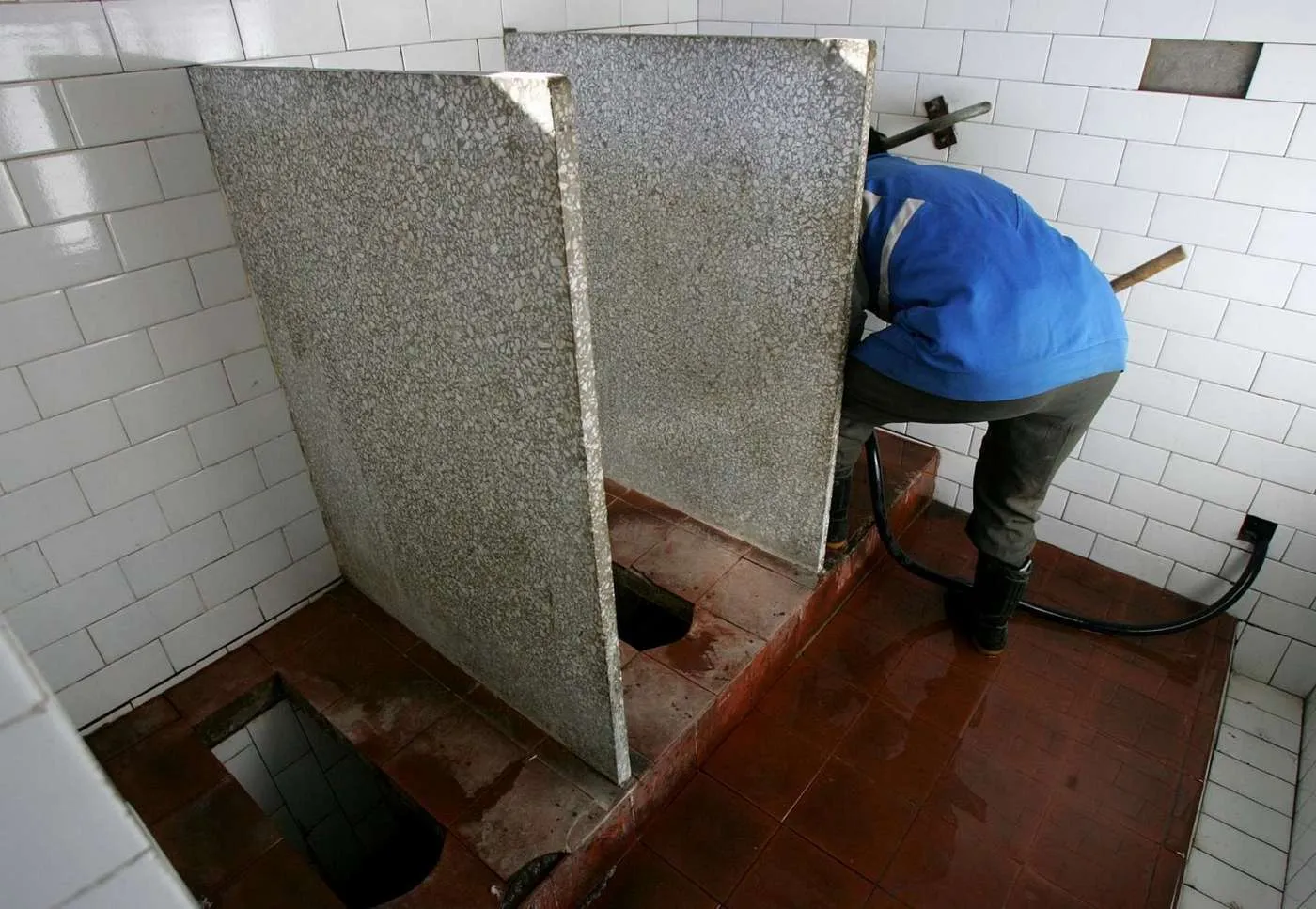
@abigail-constantino/wtop.com
For many Westerners, this can be a challenging adjustment, requiring a shift in technique and potentially leading to some awkward moments. Beyond the toilets, you might also see people squatting in public spaces, such as on sidewalks or in parks. This is a common practice, particularly in rural areas.
The Prevalence of Public Parks and Green Spaces
Despite the rapid urbanization, Chinese cities often have surprisingly large and well-maintained public parks and green spaces. These parks are popular gathering places for people of all ages, who come to exercise, socialize, or simply relax.
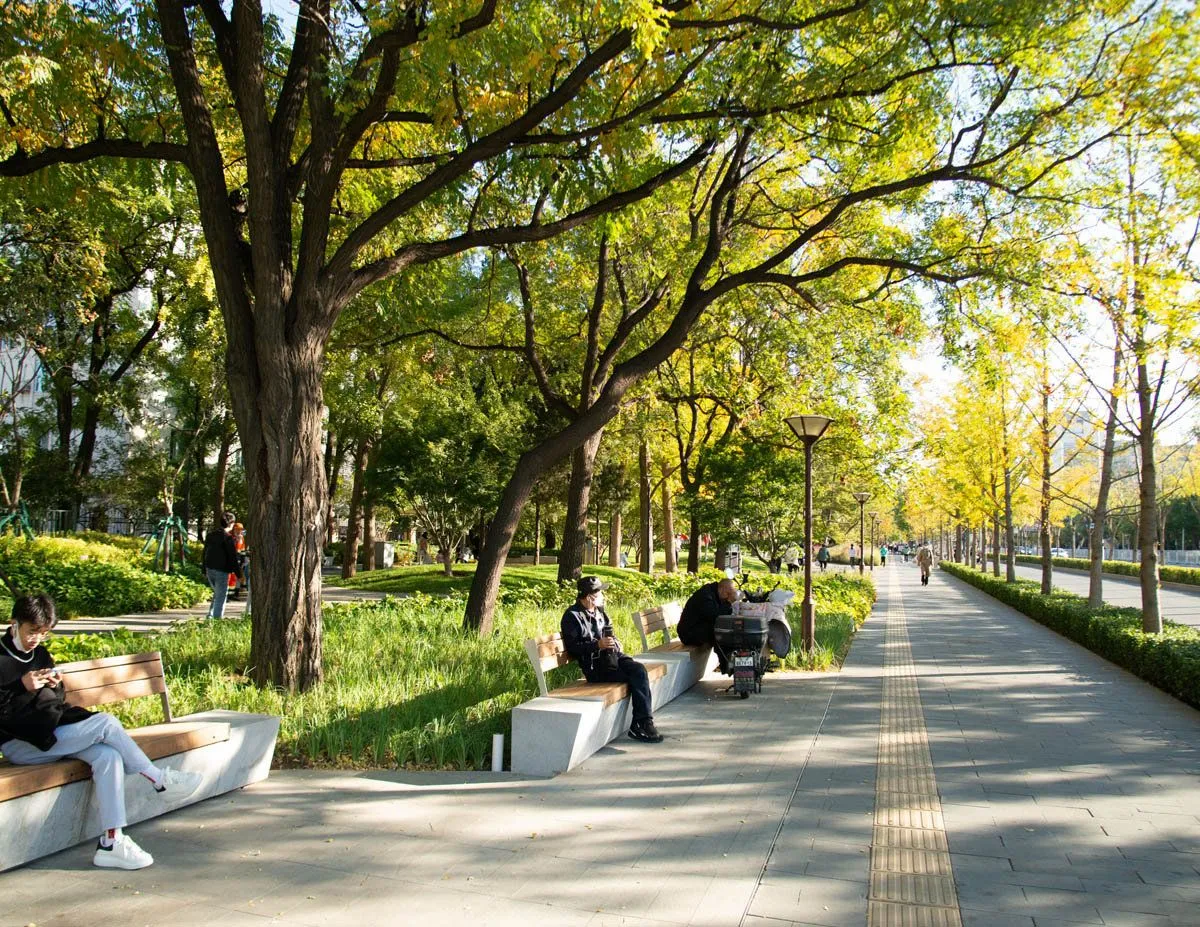
@Zhongguancun Avenue Urban Park Renovation/worldlandscapearchitect.com
They offer a refreshing escape from the fast-paced city life. The presence of these parks reflects the importance of balance and harmony in Chinese culture, even amidst rapid development. They offer a space for connection with nature and a sense of community.
Restrained Affection in Public
While public displays of affection are becoming more common in some urban areas, they are generally less prevalent than in many Western countries. Holding hands is generally acceptable but more overt displays of affection might be frowned upon, especially in more traditional settings.
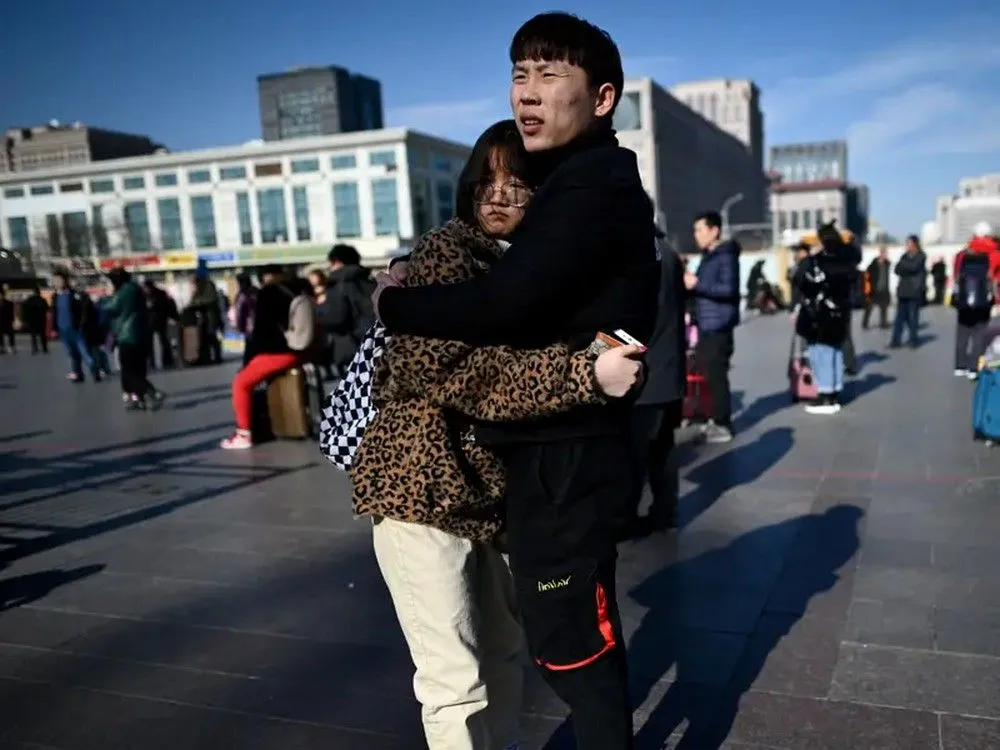
@marielle-descalsota/businessinsider.com
This can be surprising for foreigners accustomed to more open expressions of affection. It's important to be mindful of local customs and avoid overly affectionate behavior in public. Observing the behavior of locals can be a helpful guide in navigating this aspect of social interaction.
The Love for Karaoke
Karaoke, or KTV, is incredibly popular in China. It's a favorite pastime for people of all ages and a common form of entertainment. KTV establishments are ubiquitous, offering private rooms for groups to sing their hearts out.
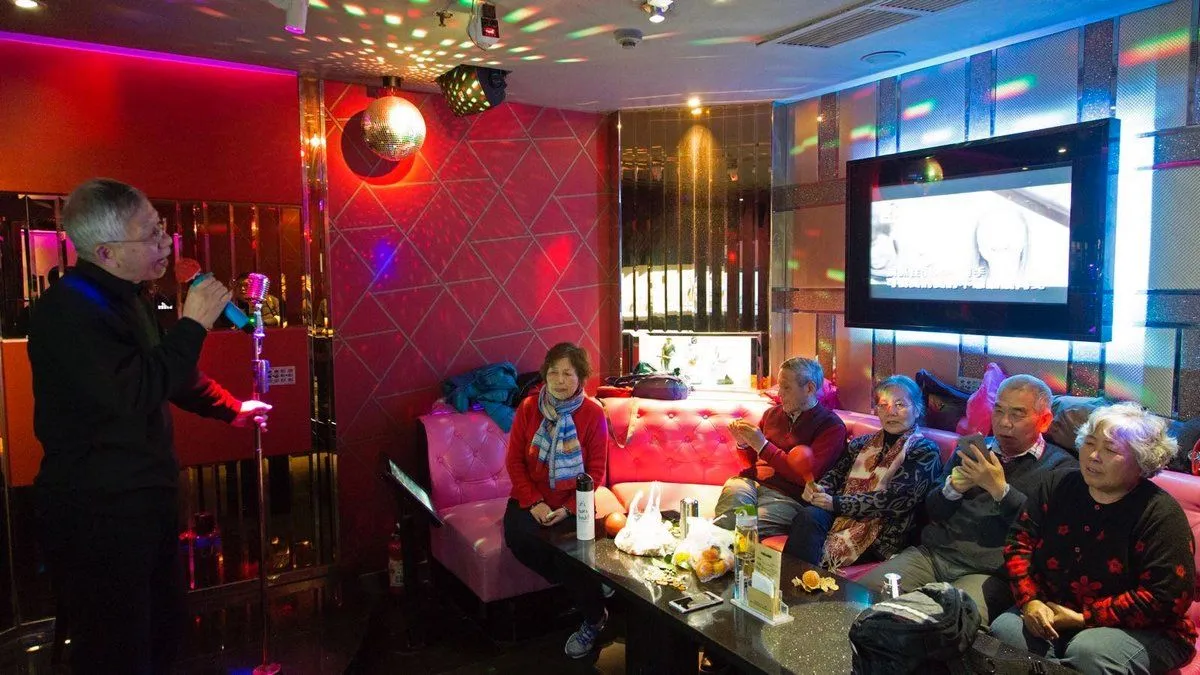
@XHNews/x.com
Don't be surprised if you're invited to a KTV session – it's a great way to experience Chinese culture and have some fun. Even if you're not a great singer, don't be shy – it's all about participation and enjoying the experience. Be prepared for a wide range of musical tastes, from Chinese pop to international hits.
The Fascination with Foreigners (and the Staring)
Foreigners visiting or living in China often experience an unexpected level of attention. Whether it’s people wanting to take selfies, children pointing and calling out "laowai" (foreigner), or locals staring with curiosity, this fascination can be surprising. While this attention is usually well-meaning, it can sometimes feel overwhelming.

@My Experience Living in China and Taiwan As A Black Woman/tanyaweekes.com
In smaller cities, foreigners are rarer and may be treated like celebrities. Many Chinese people see interactions with foreigners as an opportunity to practice English or learn about other cultures. Over time, most visitors adapt but the initial experience can be quite a shock.
Indoor Smoking
Indoor smoking remains a significant public health issue in China, despite efforts to curb the practice. While smoking bans in public places like airports and hospitals have been implemented, enforcement is often lax, especially in restaurants, bars, and entertainment venues.
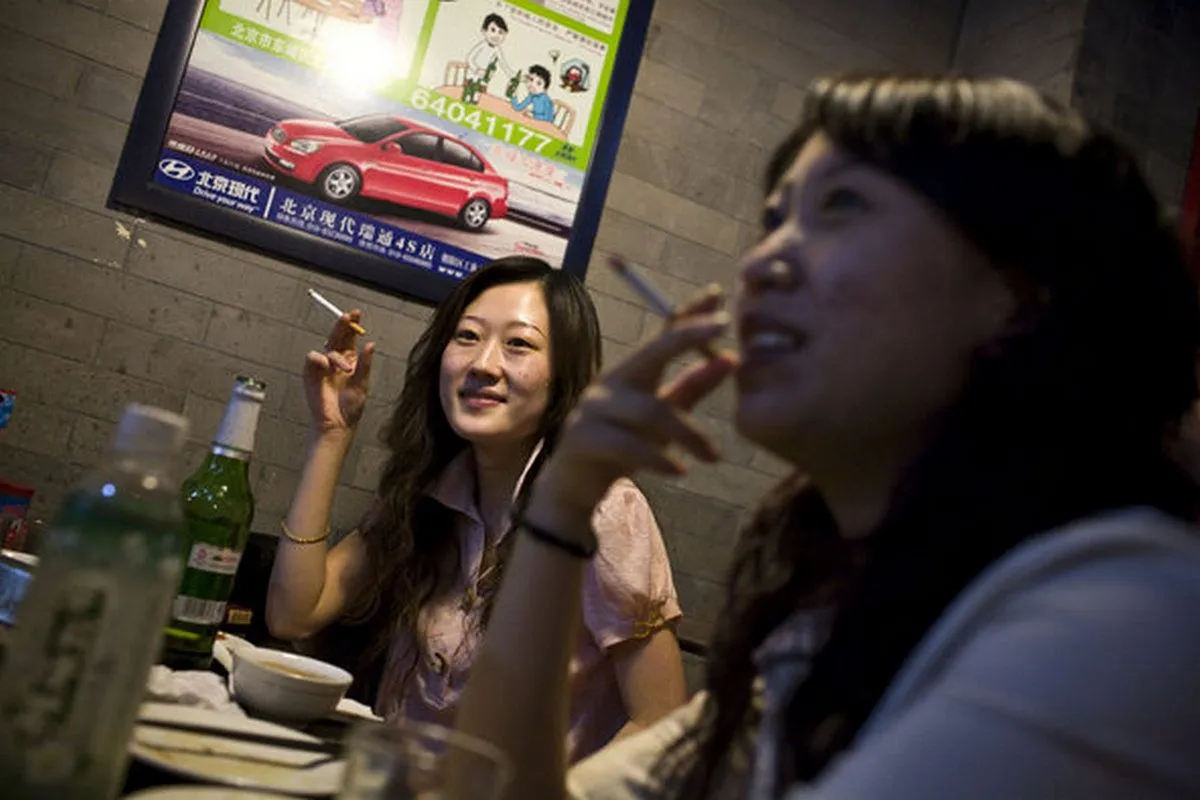
@SmokewomanOrg/facebook.com
Many people continue to smoke indoors due to cultural norms and a lack of awareness about the dangers of secondhand smoke. The government has introduced stricter regulations and anti-smoking campaigns but challenges persist in changing long-standing habits.
The Art of Bargaining
Bargaining is a common practice in many markets and smaller shops in China. Don't be afraid to haggle for a better price, especially in tourist areas. However, it's important to do so politely and respectfully.
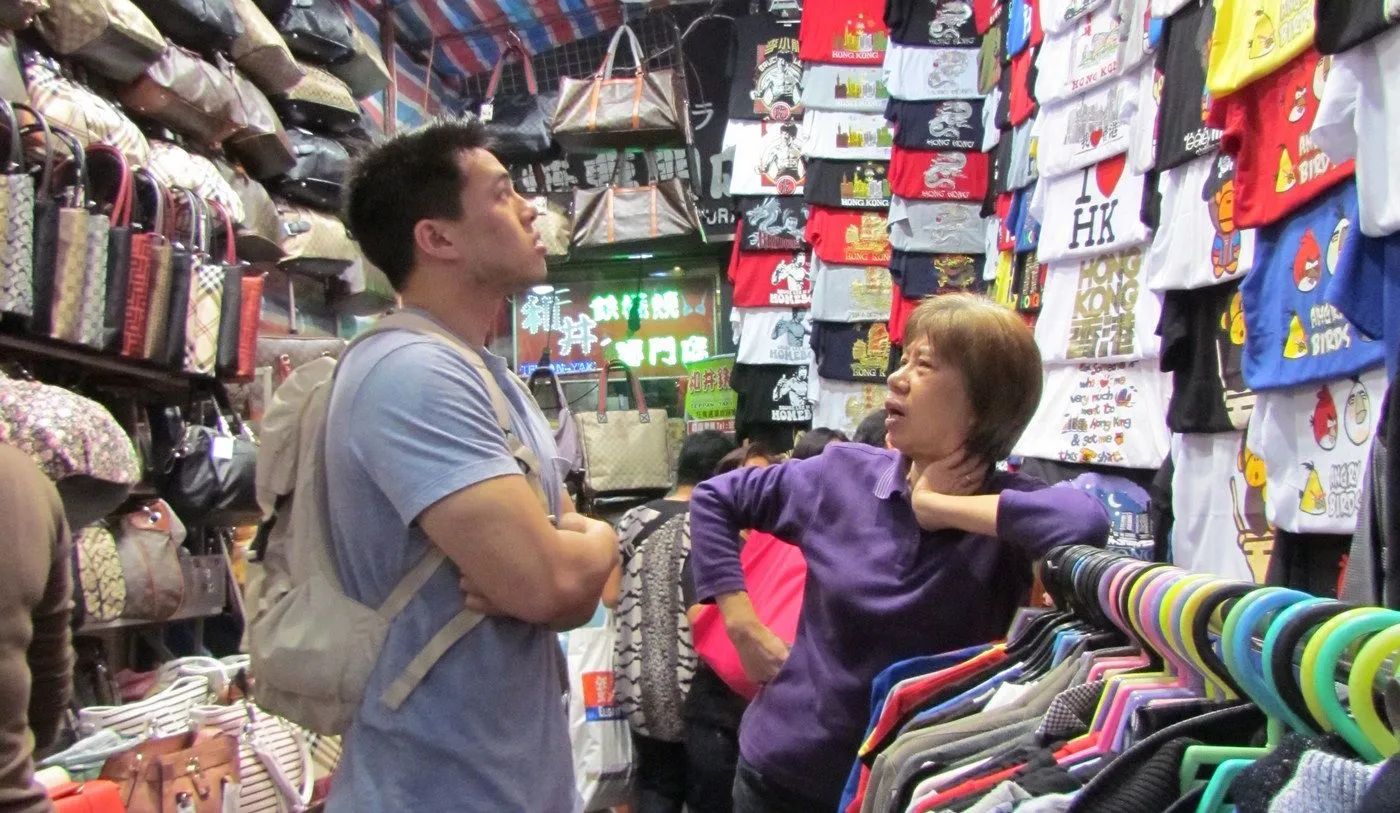
@How to Haggle in Chinese When Shopping/omeidachinese.com
Start by offering a lower price than the asking price and be prepared to negotiate. Bargaining can be a fun and engaging experience but it's important to know when to stop. Be realistic about the price you're willing to pay and don't push too hard.
The Scramble for Seats on Public Transportation
Boarding public transportation in China, especially during peak hours, can be a rather chaotic experience. Be prepared for a bit of a scramble as people jostle for seats. Queuing is not always strictly observed, and it's not uncommon for people to push and shove to get on board.
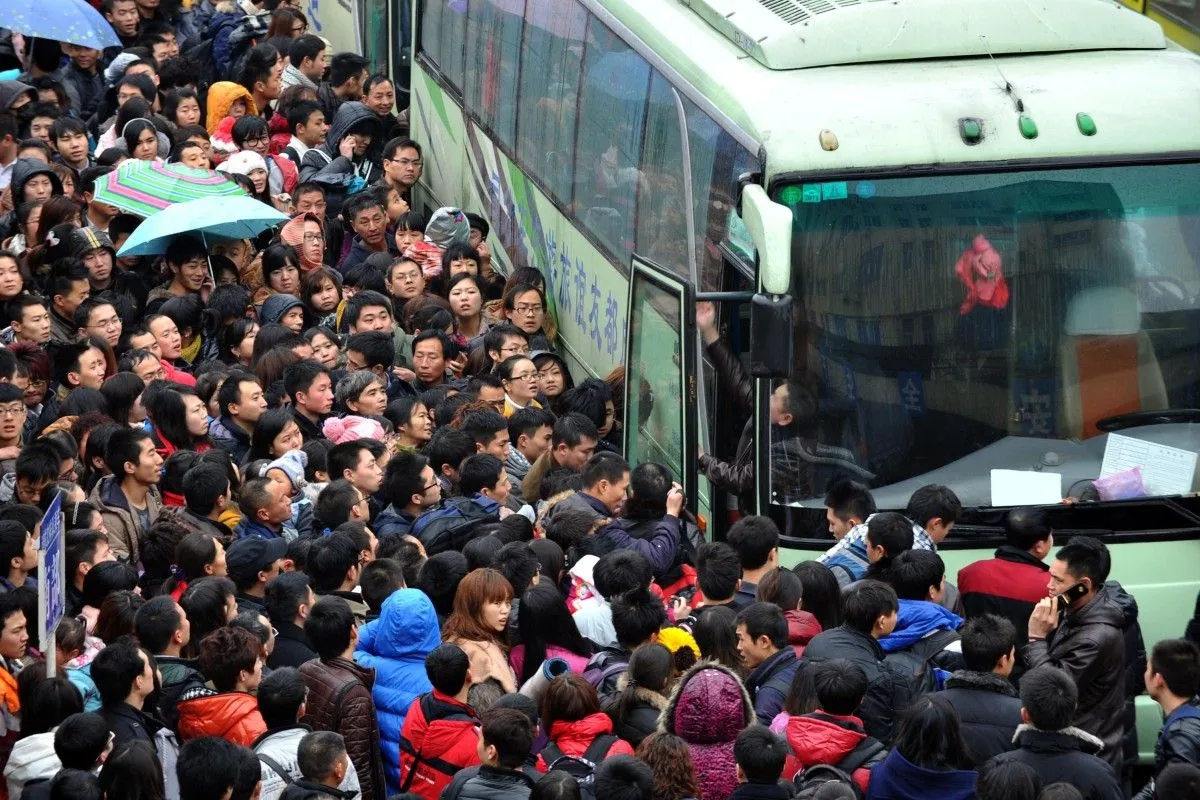
@Chinese ride-hailing app Didi Kuaidi shifts gear to shuttle buses to exploit poorly fed routes/scmp.com
This can be a bit shocking for foreigners accustomed to more orderly queuing systems. Balance assertiveness with politeness. Don't be afraid to stand your ground but also be understanding of the cultural context.
The Prevalence of Electric Scooters and Bikes
China's cities are teeming with electric scooters and bikes. They are a popular and convenient mode of transportation, and you'll see them everywhere, zipping through traffic and parked on sidewalks. This can be a surprising sight for foreigners who are not accustomed to such a high concentration of electric two-wheelers.
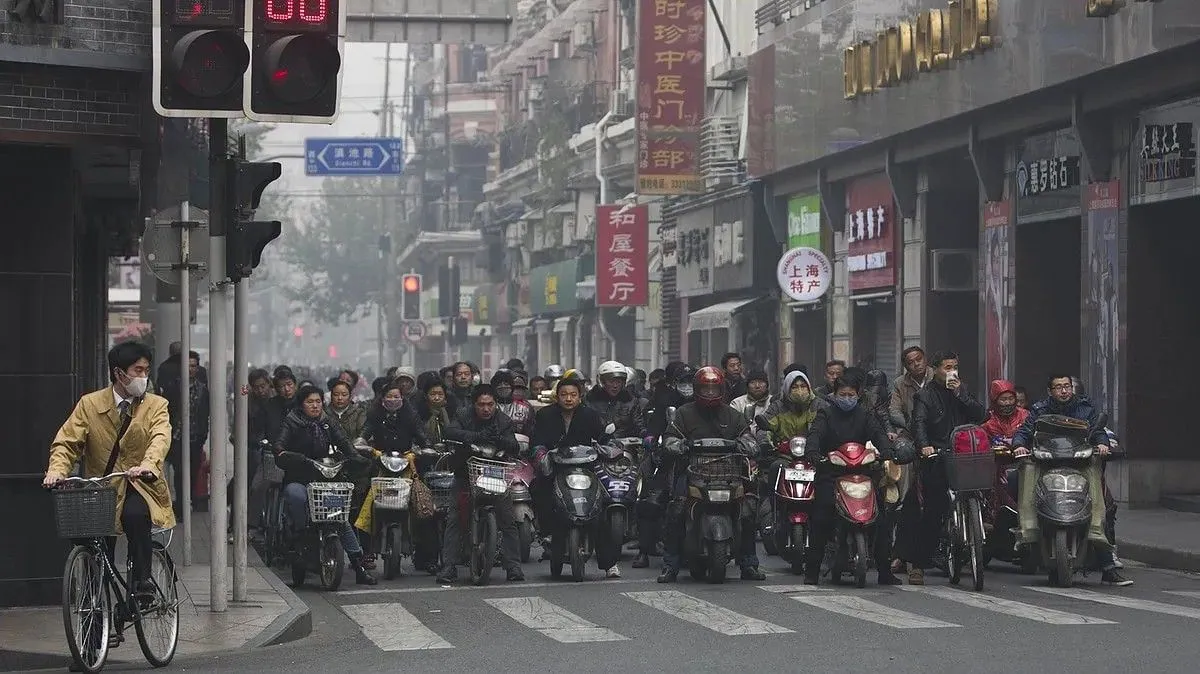
@China’s Relationship With E-Bikes: It’s Complicated/sixthtone.com
While they offer a convenient way to get around, it's important to be cautious when crossing streets, as they can be difficult to spot and often travel at high speeds. Be prepared to navigate a sea of electric scooters and bikes, especially in urban areas.
The Ubiquitous Use of Mobile Payment
China has embraced mobile payment technology with remarkable speed. Services like Alipay and WeChat Pay are incredibly popular, and you can use them to pay for almost anything, from street food to high-end purchases. Many businesses, especially smaller ones, prefer mobile payment over cash.

@Alipay and the payment methods/fabrick.com
This can be a surprise for foreigners who are used to relying more on credit cards or cash. While it's possible to use these services as a foreigner, it can be a bit complicated to set up. Having some cash on hand is always a good idea, especially in smaller establishments.
The Popularity of Hot Water
Hot water is a staple in China. It's not just for tea; it's also commonly drunk throughout the day. Many hotels and public places provide hot water dispensers, and you'll often see people carrying thermoses filled with hot water.
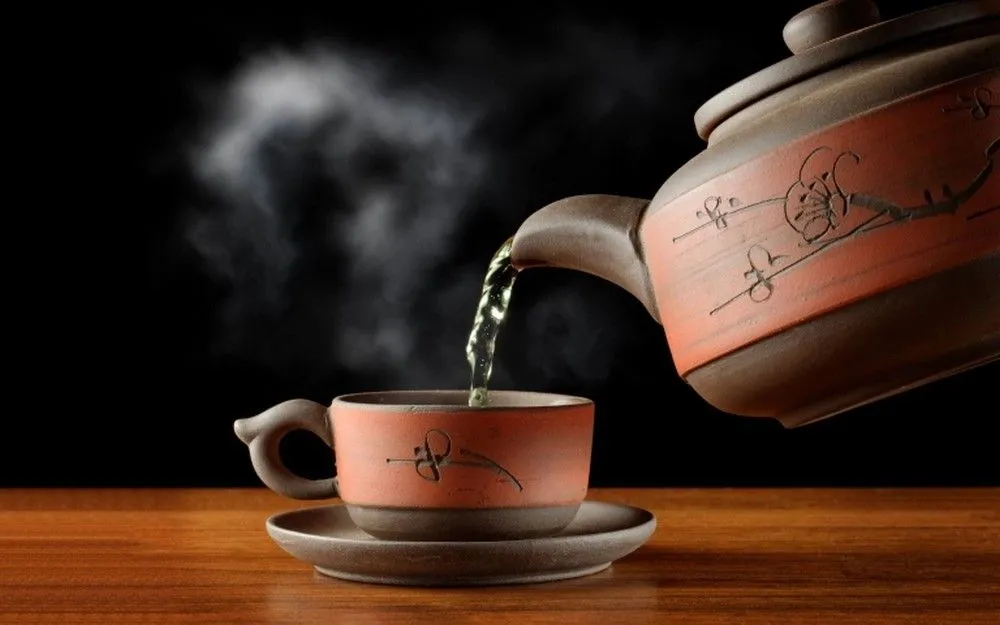
@gayle/thehelpfulpanda.com
This can be surprising for foreigners who are accustomed to drinking cold or room temperature water. The preference for hot water is rooted in traditional Chinese medicine, which emphasizes the importance of maintaining a warm body temperature.
The Urban-Rural Divide
The difference between urban and rural areas in China can be stark. Cities like Beijing and Shanghai boast modern infrastructure, bustling commercial districts, and a fast-paced lifestyle. Rural areas, on the other hand, often retain a more traditional way of life, with simpler housing, agricultural practices, and a slower pace.

@robert-wihtol/aspistrategist.org.au
This urban-rural divide is a reflection of China's uneven development and the challenges it faces in bridging the gap between its prosperous cities and its less developed countryside. The contrast can be visually striking, a journey from gleaming skyscrapers to humble farmhouses, highlighting the disparities that still exist.
The Ghost Cities
While China's development has been remarkable, it has also led to the phenomenon of "ghost cities." These are large-scale developments that were built with the expectation of rapid population growth but remain largely empty.
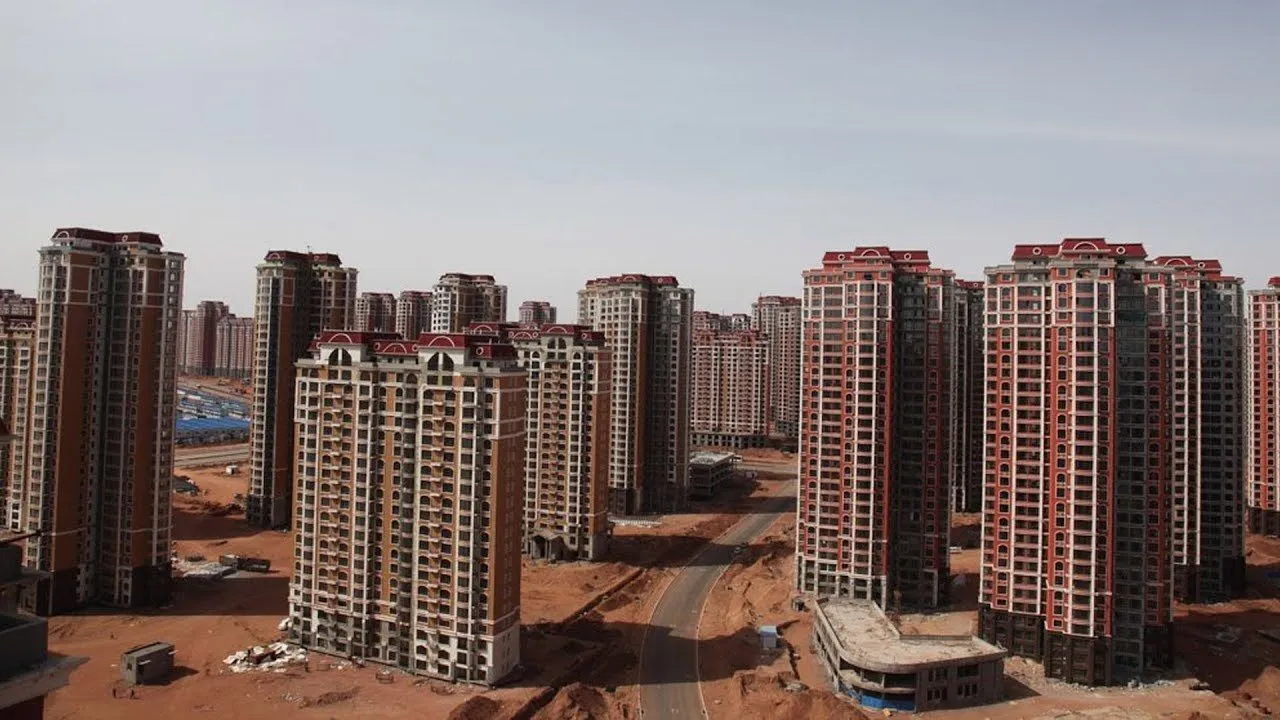
@UrbanHell/reddit.com
These ghost cities serve as a reminder of the challenges of rapid urbanization and the complexities of economic development. They stand as eerie, often unfinished, monuments to overambitious planning and the sometimes unpredictable nature of growth.
The daily ritual of public exercise
Public exercise is a common sight in China, especially in the mornings and evenings. You'll see people practicing tai chi, dancing, and engaging in other forms of exercise in parks and public squares.
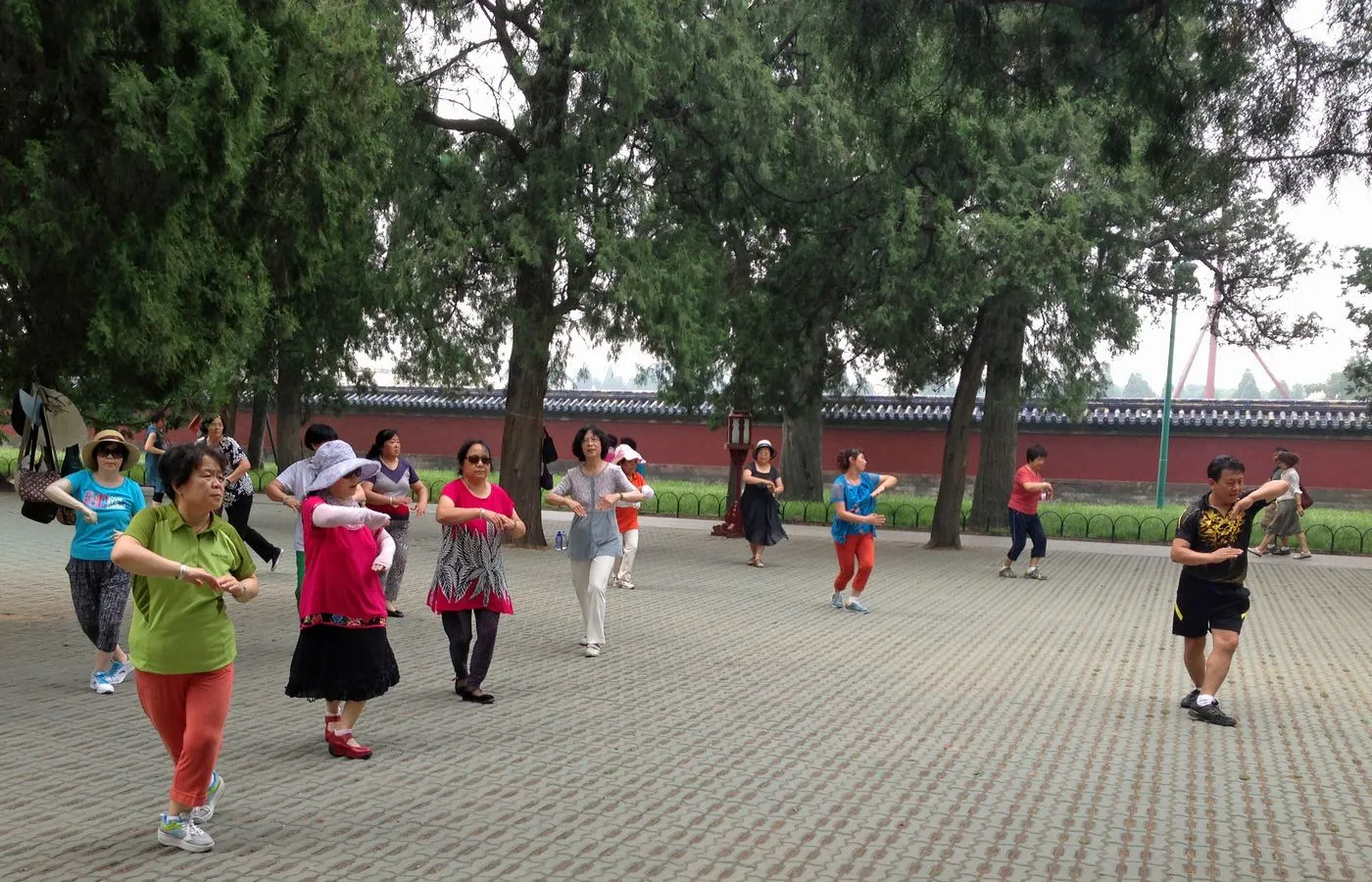
@allisonswanderlust/wordpress.com
This emphasis on physical activity is a testament to the importance of health and well-being in Chinese culture. Joining a public exercise group can be a great way to meet locals and experience Chinese culture firsthand.
The strength of family bonds
Family plays a central role in Chinese society. Filial piety, or respect for one's elders, is a deeply ingrained value and encompasses a deep sense of responsibility for the well-being of older generations. Family gatherings are common occurrences, often involving multiple generations coming together to share meals, celebrate holidays, and simply enjoy each other's company.

@People in China have family reunion dinners/newsgd.com
Family members play a significant role in each other's lives, providing emotional support, financial assistance, and guidance, influencing decisions related to education, career, and even marriage. This emphasis on family can be a refreshing contrast to the more individualistic cultures of some Western countries.
The Variety of Street Food
China is a street food paradise. From dumplings and noodles to skewers and snacks, the variety of street food is astounding. Exploring the local street food scene is a must-do for any visitor. Beyond the familiar sweet and sour or General Tso's chicken, there's a vast array of regional specialties, like the spicy Sichuan cuisine with its numbing peppercorns or the delicate Cantonese dim sum.

@Exploring the exotic food market/danarif.com
Be adventurous and try some of the local specialties – you might be surprised by what you discover. Don't be afraid to ask locals for recommendations – they can point you towards hidden culinary gems. However, it's important to choose vendors that look clean and hygienic to avoid any stomach issues.
The Unspoken Rules of Chopstick Etiquette
Chopstick etiquette in China is a minefield of unwritten rules. There are numerous things you should avoid doing with your chopsticks, such as sticking them vertically in a bowl of rice (this resembles incense offerings to the dead), tapping them on the table, or using them to point at someone.

@datng8/medium.com
These seemingly minor actions can be considered rude or disrespectful. Understanding these unspoken rules is essential for avoiding social faux pas. It's a complex set of customs that reflects the importance of respect and tradition in Chinese dining culture.
The Lack of Personal Space
Personal space is not as highly valued in China as in many Western countries. Prepare for close proximity in public spaces like subways and buses. People may stand very close in queues, and bumping into someone or having someone stand very close while talking is not considered rude.
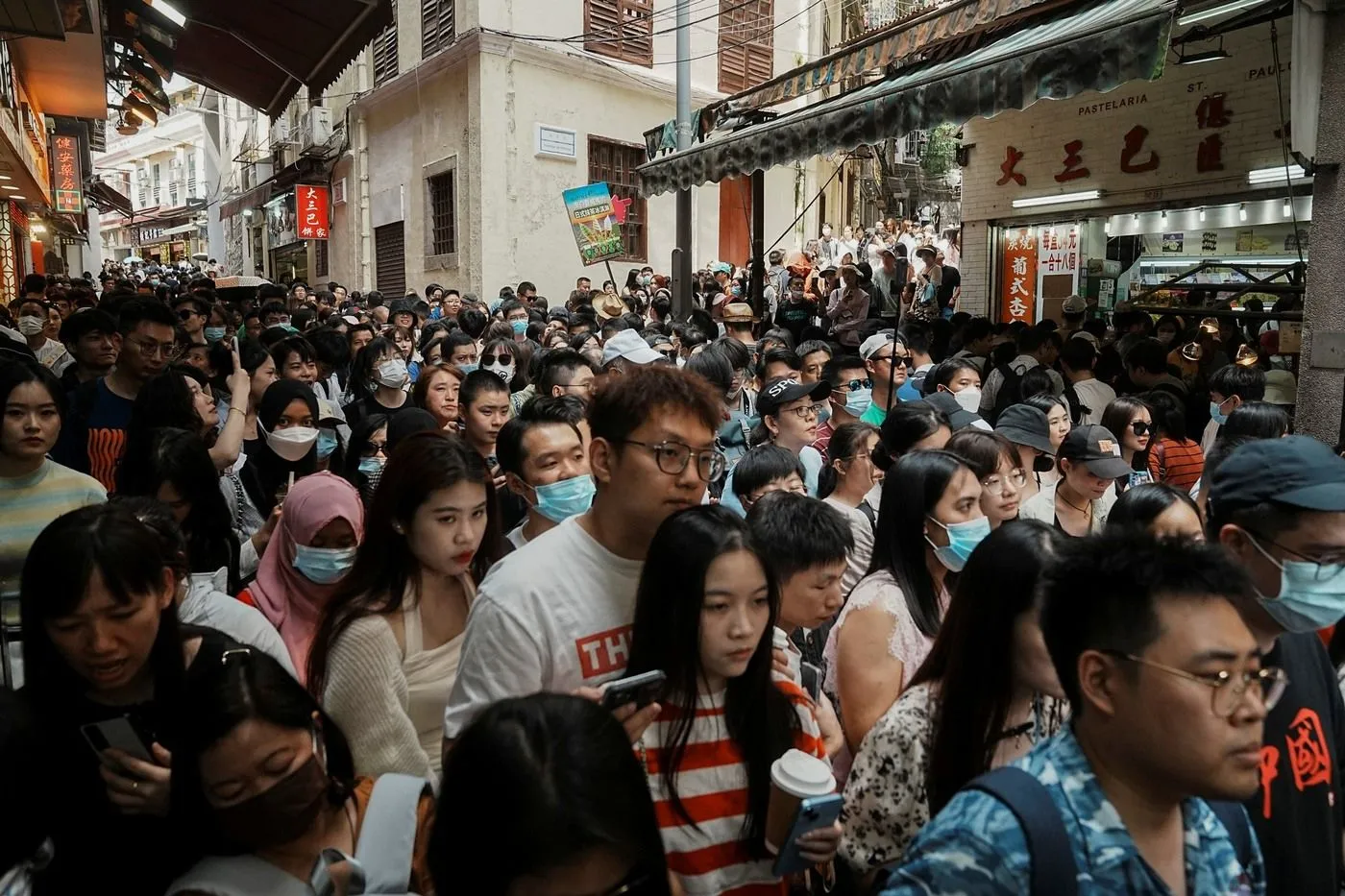
@TheStraitsTimes/facebook.com
This can be disconcerting for foreigners accustomed to more personal space. It's common to experience a lack of physical distance in crowded areas, a cultural difference that can initially feel overwhelming. This close proximity isn't meant to be intrusive; it's simply a different cultural norm. Adjusting to this can be a key part of navigating daily life in China.
Air pollution
Air pollution in some Chinese cities, especially in northern regions during winter, can be a startling experience for visitors. Thick smog often blankets the sky, drastically reducing visibility and creating an eerie, gray atmosphere. The strong, acrid smell of pollutants lingers in the air, leaving many concerned about the health implications.
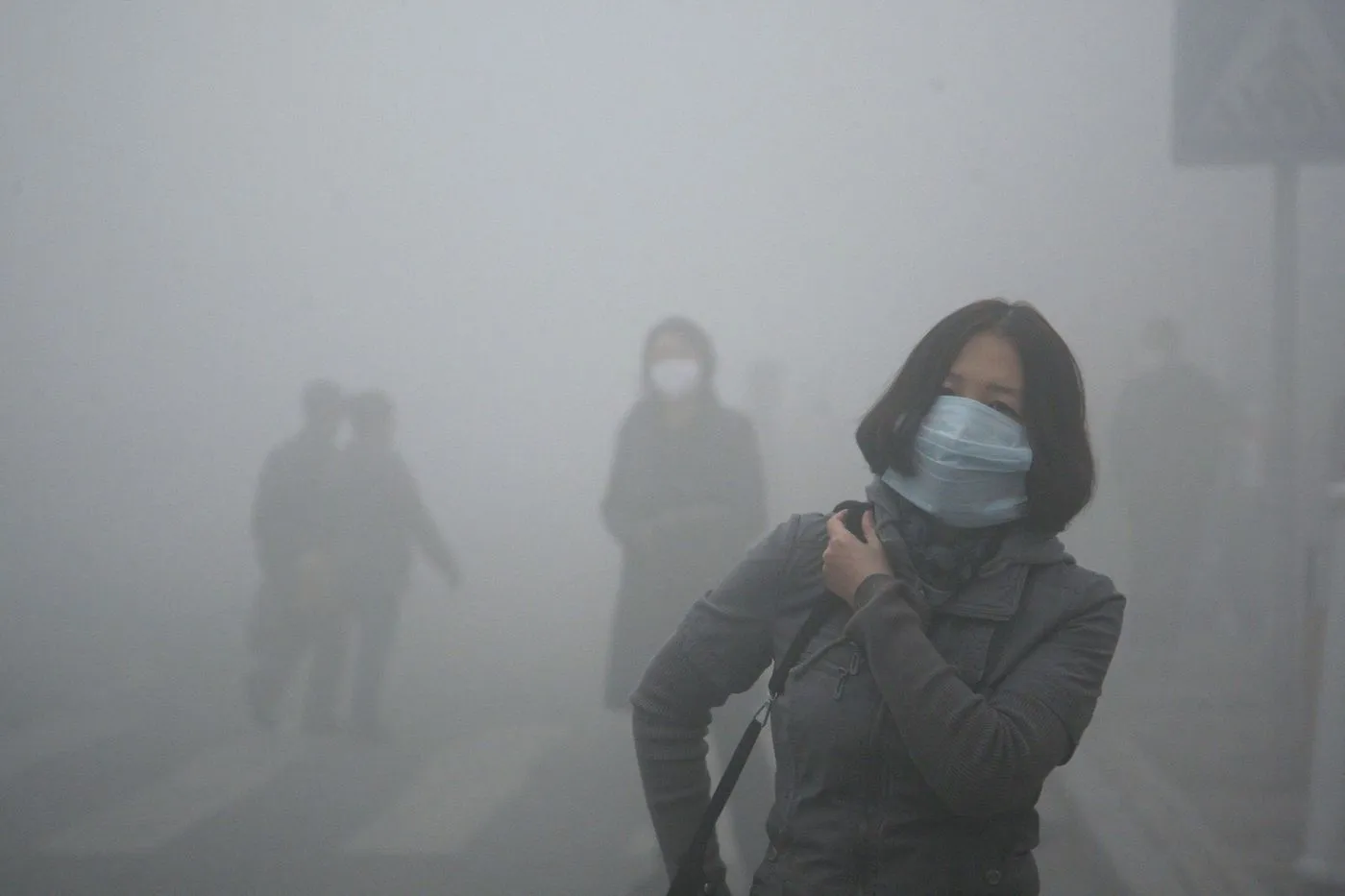
@Three Chinese cities failing to reduce air pollution have been banned to launch new projects/silkroadnews.org
This severe pollution is largely driven by coal burning for heating, industrial emissions, and vehicle exhaust. While the government has implemented measures to improve air quality, such as promoting clean energy and restricting coal use, progress varies by region.
High-Speed Rail and Public Transit
China’s high-speed rail system is a marvel of modern transportation, offering fast, efficient, and comfortable travel across the country. With trains reaching speeds of up to 350 km/h, journeys between major cities are significantly shortened, making it an ideal choice for both business and leisure travelers.
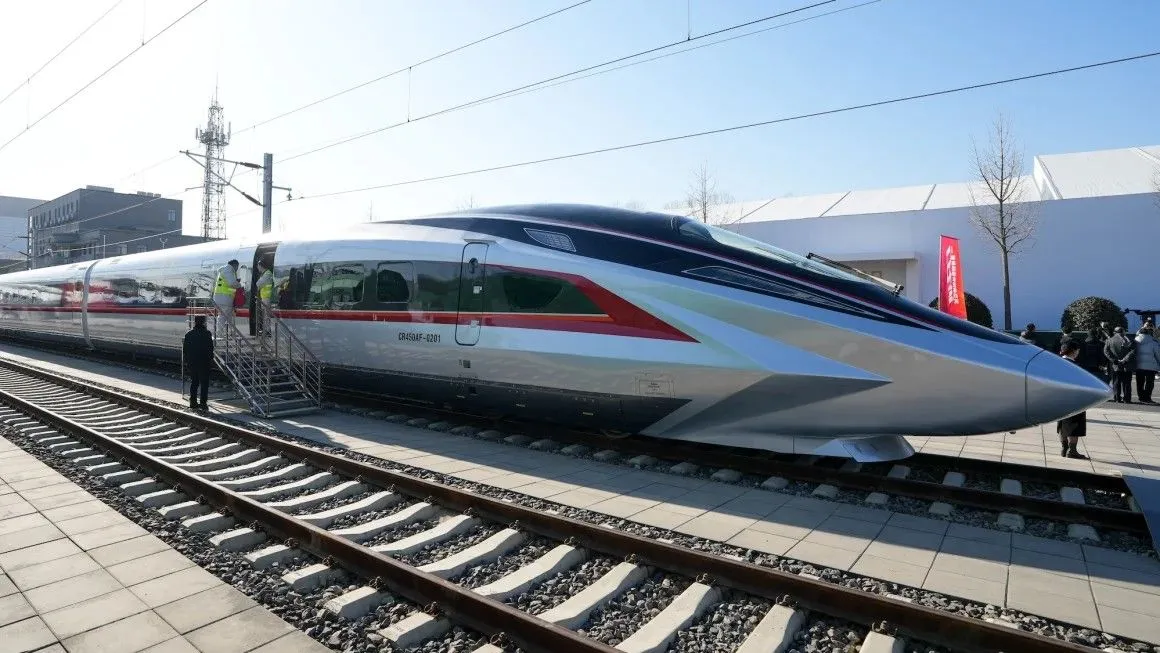
@World’s fastest high-speed train/cnn.com
The system is also affordable, punctual, and well-connected, with stations often located in city centers. Beyond rail, China’s public transit networks, including metros and buses, are generally reliable and extensive, catering to millions daily. Clean, safe, and easy to navigate, these systems make getting around cities a breeze.
The cultural fascination with lucky numbers
Numbers hold significant cultural meaning in China. People believe some numbers are lucky, and others are unlucky. For example, the number 8 is considered very lucky because its pronunciation is similar to the word for "prosperity."
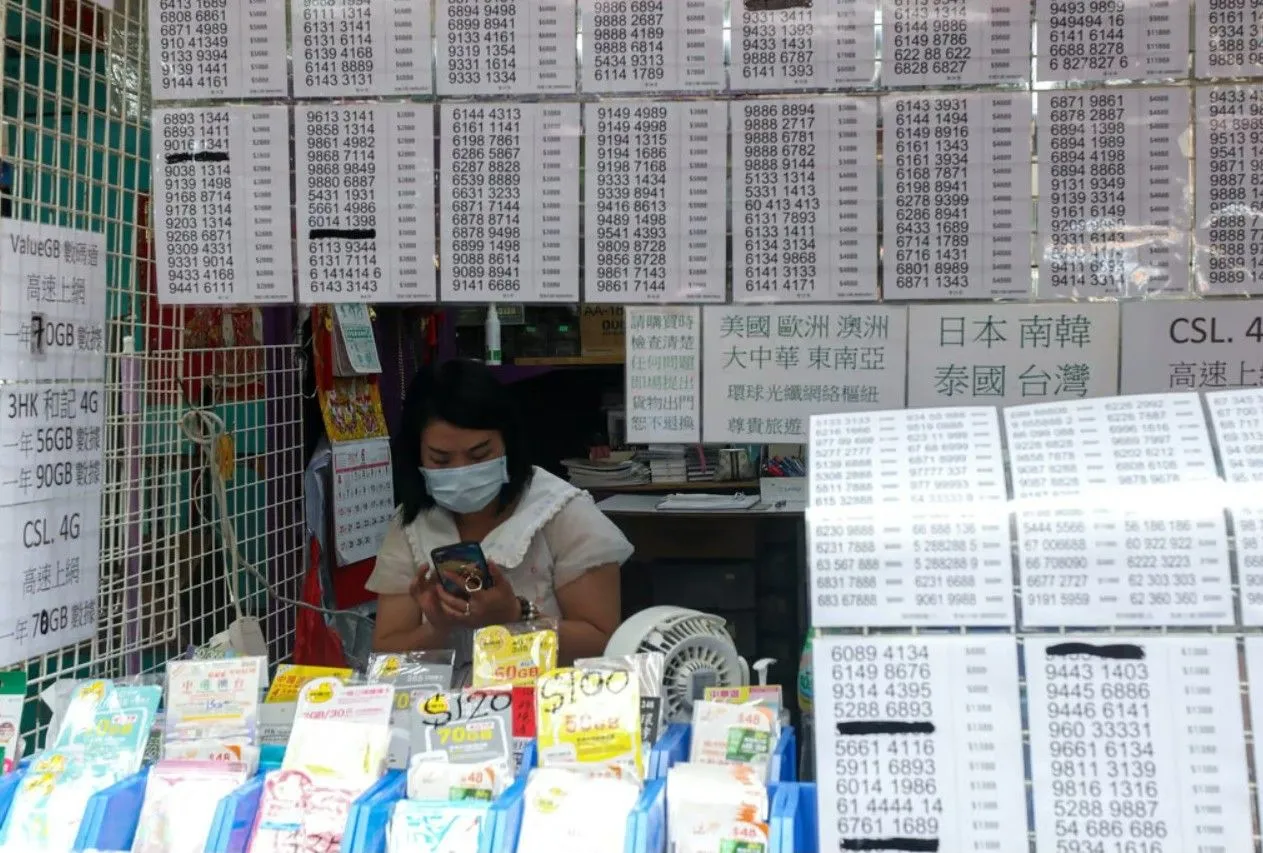
@Lucky phone numbers/scmp.com
The number 4, on the other hand, is considered unlucky because its pronunciation is similar to the word for "death." This belief in the significance of numbers can influence everything from choosing a phone number to setting a wedding date.
Matching Outfits
It's not uncommon to see couples, particularly elderly couples, wearing matching outfits in China. This can range from matching colors or patterns to identical outfits. This practice reflects the importance of harmony and togetherness in Chinese culture.
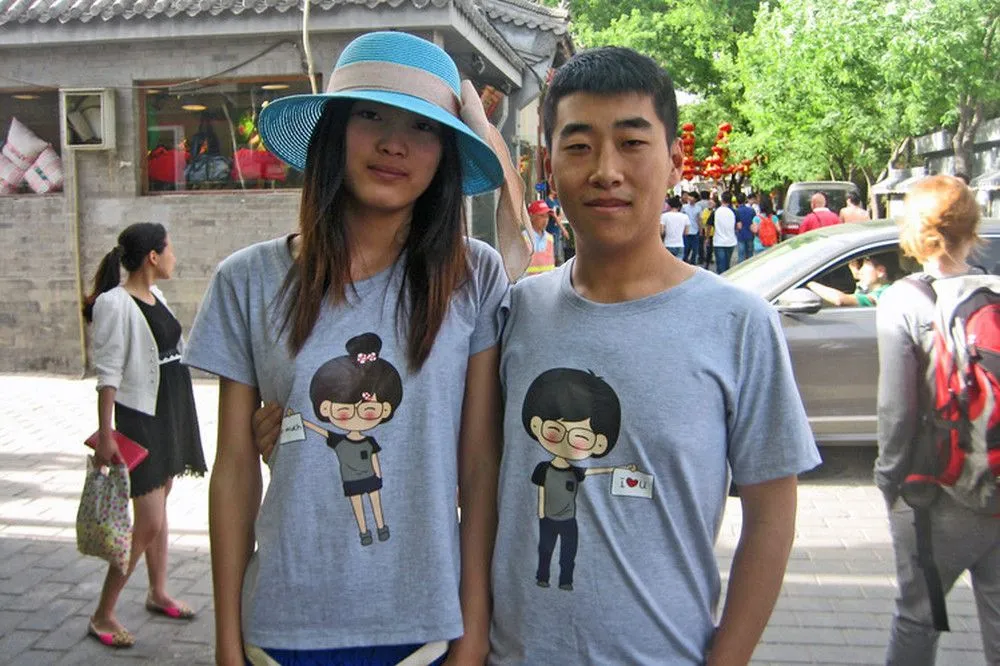
@In China, Couples Wear Matching Outfits/wsj.com
It's a visible symbol of the bond between the couple and can be seen as a sign of affection and commitment. While matching outfits might seem unusual to some foreigners, it's a sweet and endearing custom that highlights the importance of relationships.
Copycat Products
While intellectual property protection is becoming increasingly important in China, copycat products are still relatively common. You might encounter knock-off versions of popular brands, from clothing and electronics to handbags and watches. While these products might be cheaper, the quality can be questionable.
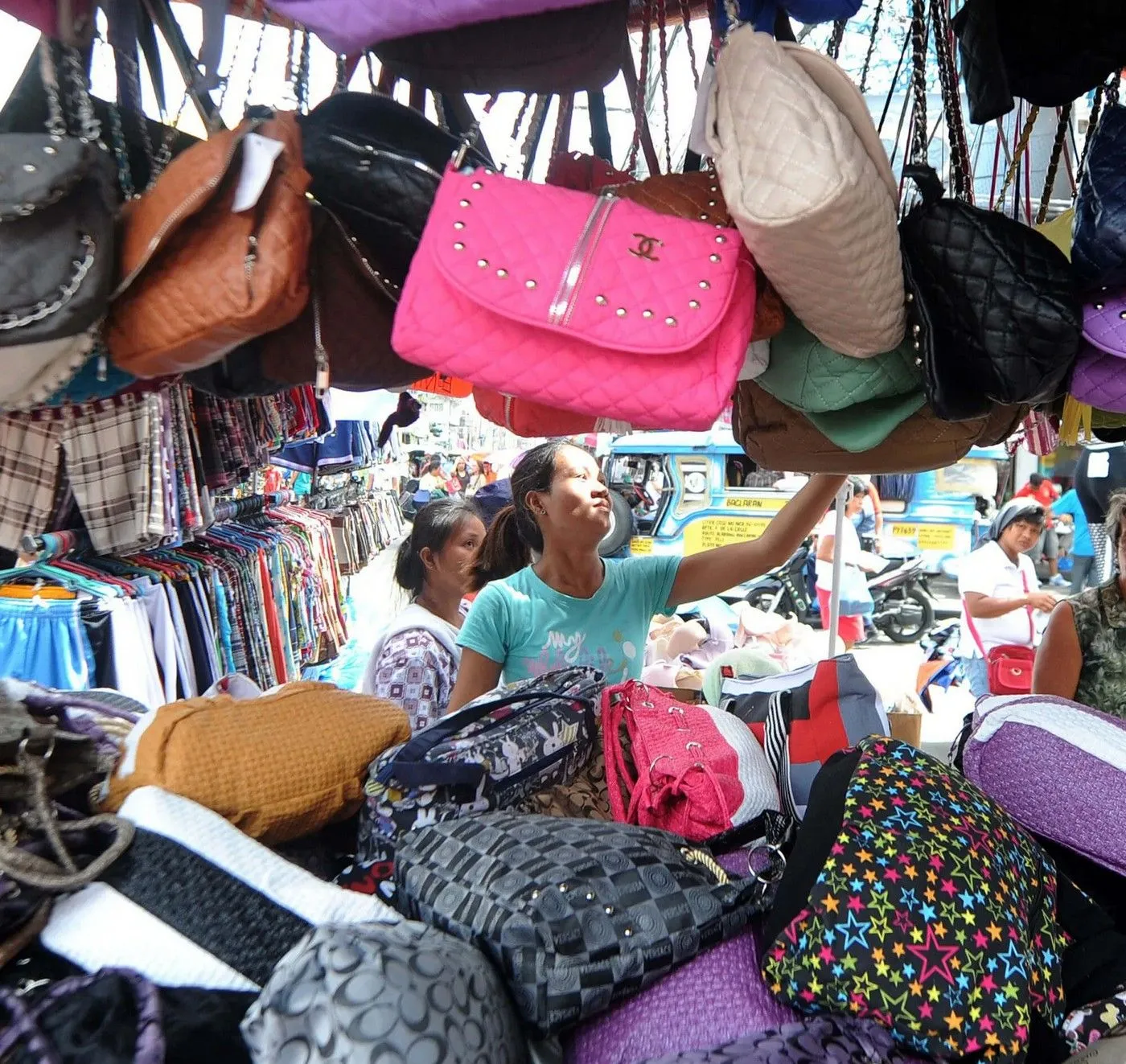
@Who is buying China’s luxury fakes?/voguebusiness.com
It's important to be aware of this and to purchase products from reputable vendors to avoid getting ripped off. This phenomenon is a reflection of China's rapid development and the challenges it faces in protecting intellectual property rights.
QR Codes Everywhere
QR codes are everywhere in China. They are used for everything from mobile payments and accessing information to downloading apps and sharing contact details. Learning how to use QR codes is essential for navigating the digital landscape in China.
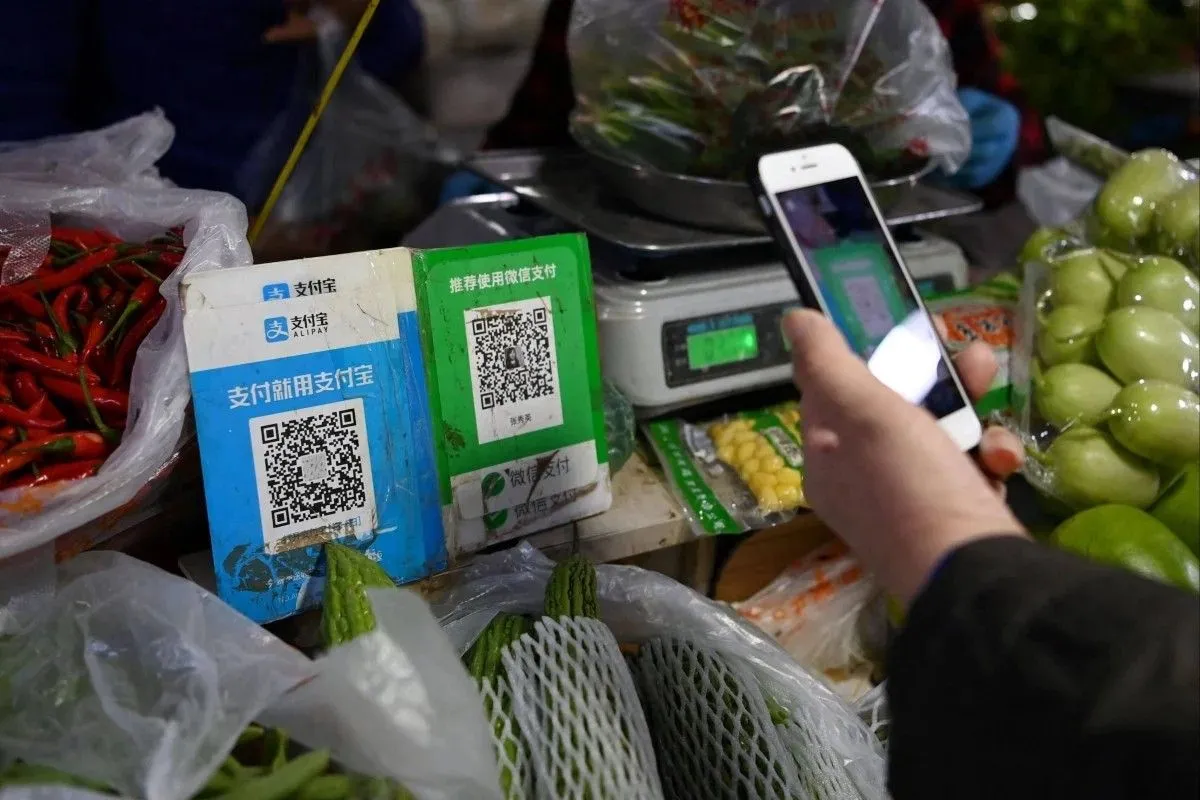
@China back-pedals on plan to ban personal QR codes for business payment receipts after backlash/scmp.com
Most smartphones have built-in QR code scanners, and there are also dedicated apps available. Being able to scan QR codes will make your life in China much easier.
The Concept of "Walking Through the Back Door"
"Walking through the back door" refers to using connections and relationships (guanxi) to gain advantages or access to things that are not readily available to everyone. This can be seen in various aspects of life, from getting a child into a good school to securing a business deal.
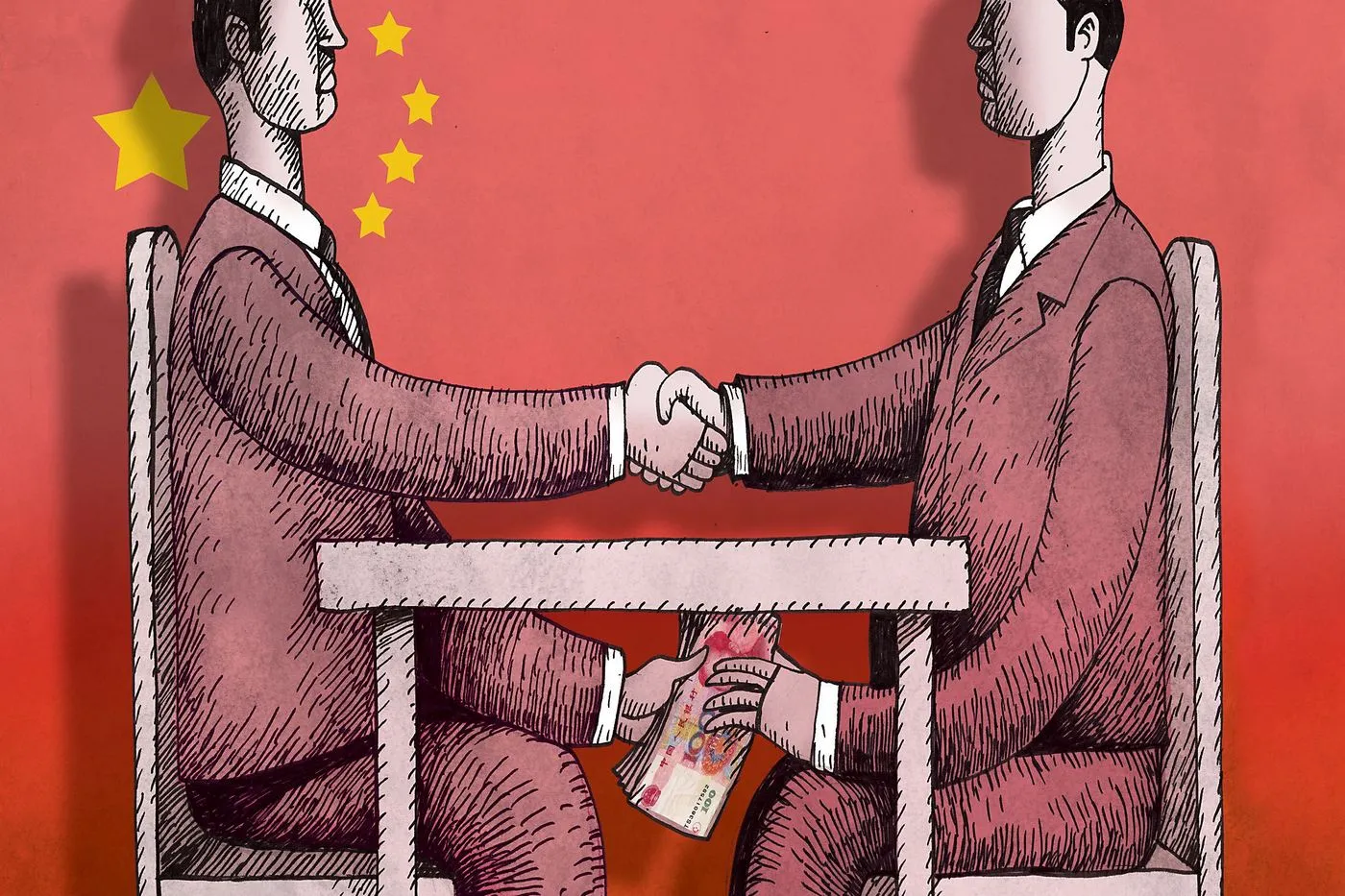
@Rising Powers’ Efforts to Stamp Corruption: The Chinese Case/kureselcalismalar.com
While it might seem unfair to some, it's a reality of life in China. Understanding how "guanxi" works can be beneficial for navigating social and business situations. It's not necessarily about corruption; it's more about leveraging personal connections to achieve desired outcomes.
The Importance of Business Cards
Business cards are an essential part of business etiquette in China. When exchanging business cards, it's important to present them with both hands, facing the recipient. Receive the card with both hands as well, and take a moment to look at it before putting it away.
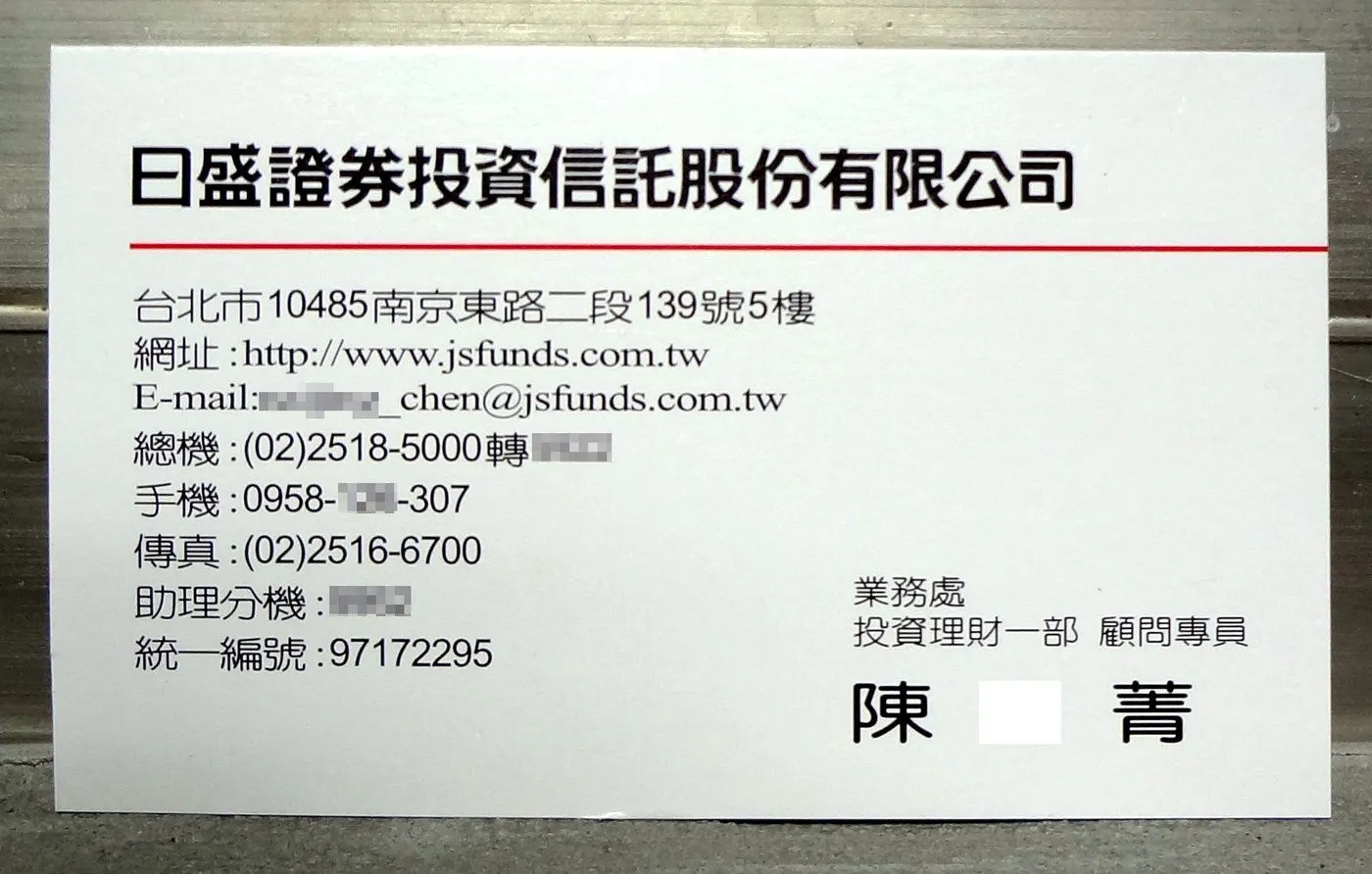
@Jih Sun Securities Investment Trust business card/wikimedia.org
This shows respect for the other person and their position. Having your business card translated into Chinese is also a good idea, especially if you're doing business in China.
Public Spitting
One of the biggest cultural shocks for foreigners is witnessing public spitting, especially among older generations. While younger Chinese are adopting more modern hygiene habits, it is still common to hear loud throat-clearing and spitting in public spaces.
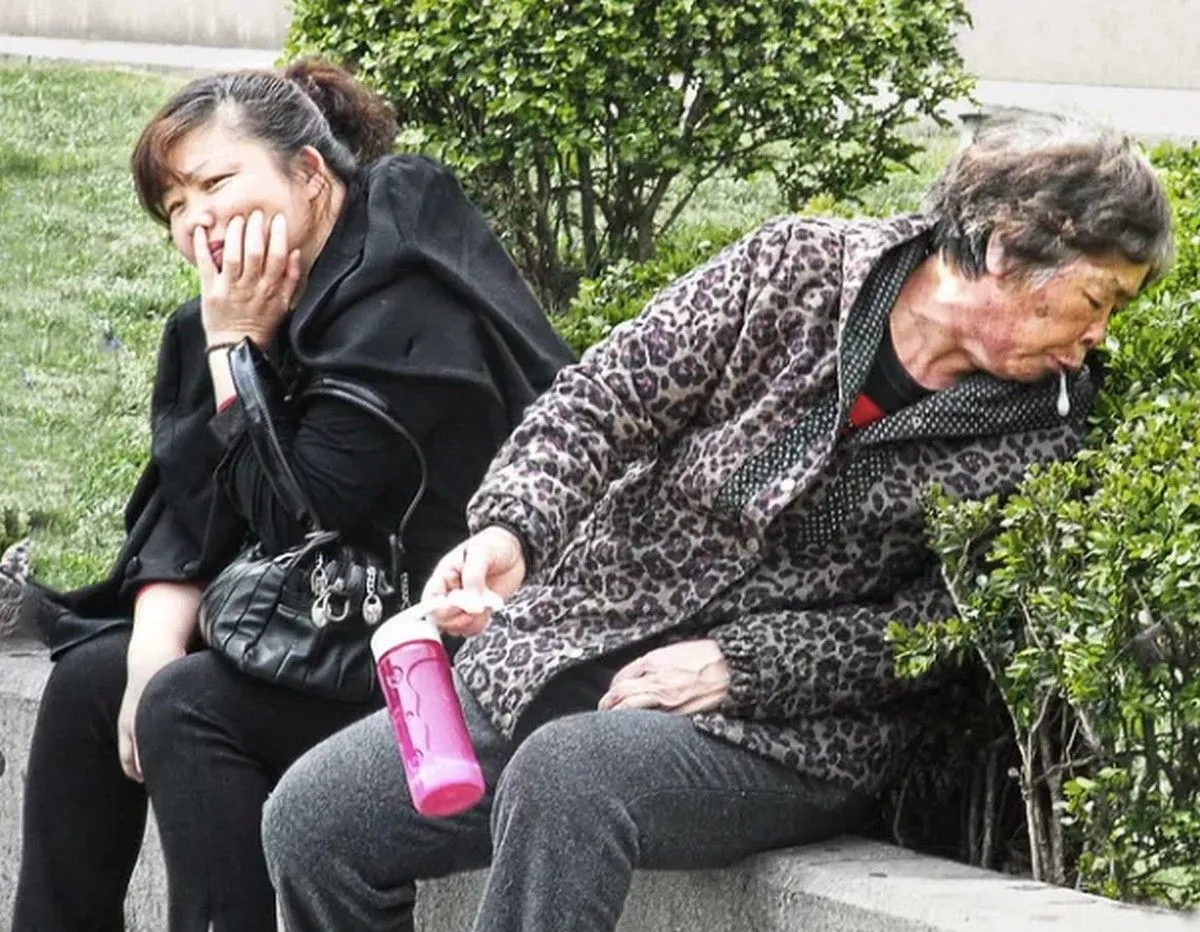
@ovanovasullenfables/medium.com
Historically, spitting was believed to clear the body of toxins, making it an accepted practice in traditional Chinese medicine. Despite government efforts to curb the habit, especially before the Beijing Olympics, it persists in many areas.
The Vibrant Soundscape of China’s Cities
China’s cities offer a unique auditory experience, filled with the honking of scooters, the lively chatter of street vendors, blaring park music, and frequent loudspeaker announcements. For visitors, especially those from quieter environments, this cacophony can feel overwhelming. Yet, these sounds are an integral part of China’s urban energy and dynamism.
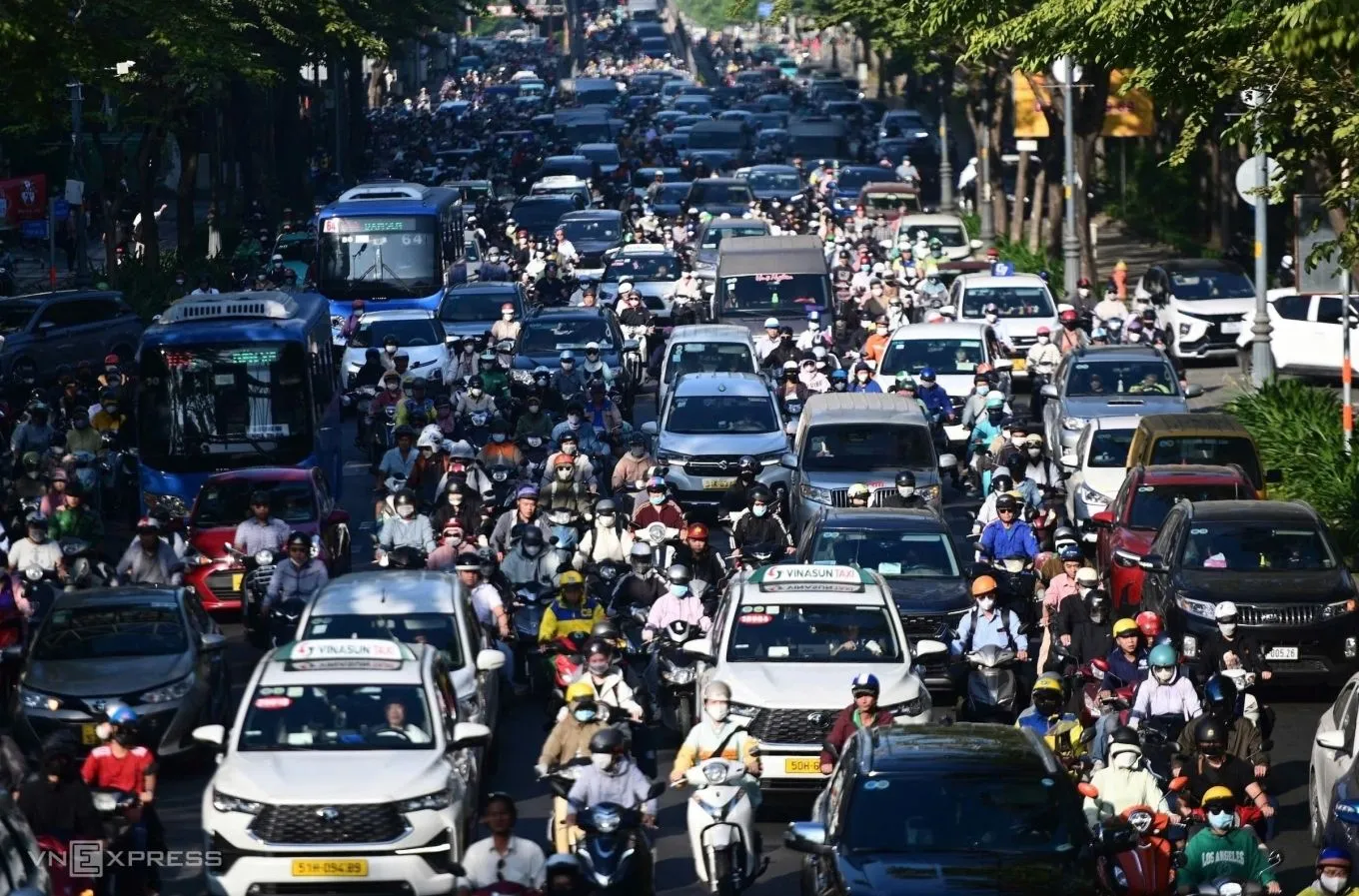
@Khanh Hoa Trinh/vnexpress.net
Car horns, for instance, are used constantly, often for reasons that might seem puzzling to outsiders. Instead of resisting the noise, embrace it as a window into the rhythm of daily life. The vibrant soundscape reflects the bustling, fast-paced nature of Chinese society, making it an unforgettable part of the cultural experience. Immerse yourself, and you’ll find beauty in the chaos.
The Omnipresence of Surveillance Cameras
China has a vast network of security cameras in public spaces, from street corners and shopping malls to parks and even some residential areas. This widespread surveillance can be surprising for foreigners who are not accustomed to such a high level of monitoring.
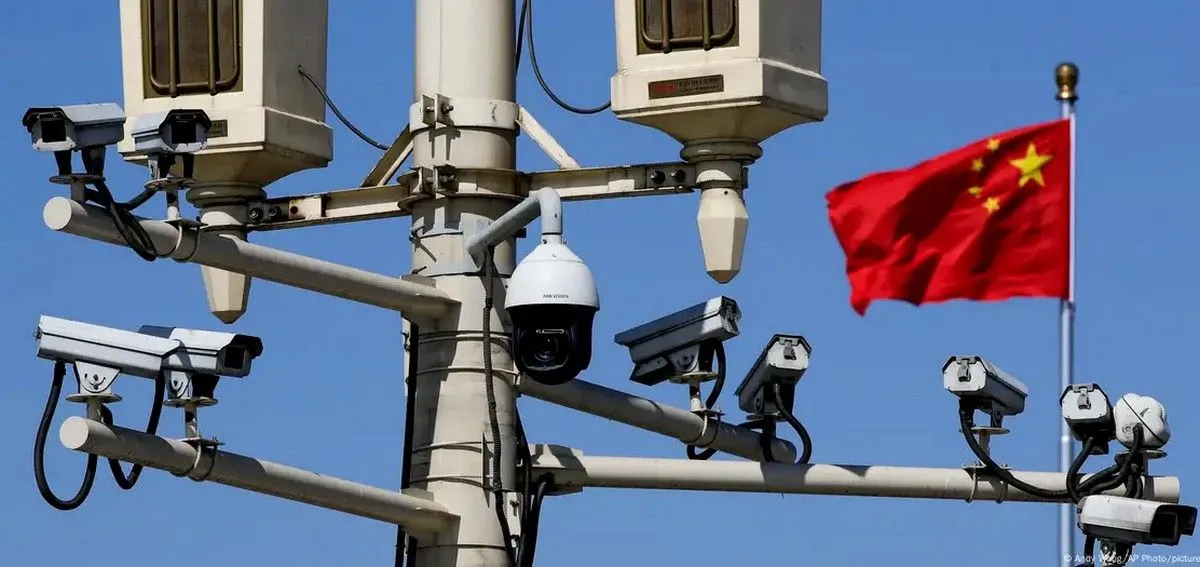
@China spying on Germany, say intelligence chiefs/dw.com
While the stated purpose is to enhance public safety, it also raises privacy concerns. It's important to be aware of the presence of these cameras and to be mindful of your behavior in public places. This pervasive surveillance is a reflection of the government's focus on social control and security, prioritizing collective safety over individual privacy.
The Stark Contrast Between Wealth and Poverty
One of the most striking things foreigners often observe in China is the vast disparity between wealth and poverty. While some cities showcase incredible affluence, with luxury cars, high-end shopping malls, and opulent residences, other areas, even within the same city, reveal significant poverty.
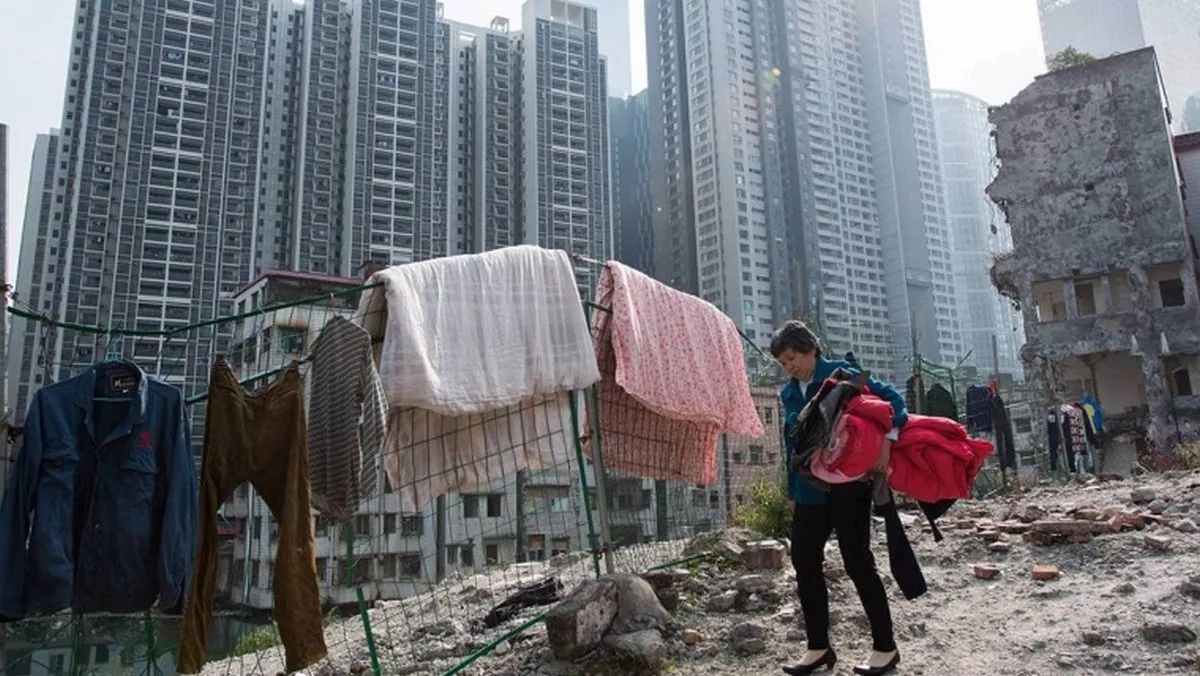
@Nancy Qian/interest.co.nz
This stark contrast can be shocking, highlighting the uneven distribution of wealth that has accompanied China's rapid economic growth. It's a complex issue with deep roots, and witnessing this disparity firsthand can be a sobering experience. This visible gap serves as a reminder of the social and economic challenges that China continues to address.
The Art of Public Napping
Public napping is a common sight in China, particularly during midday hours. It’s not unusual to spot people dozing off on park benches, office chairs, or even sidewalks. For foreigners, this open display of sleep might seem surprising but it’s deeply rooted in China’s fast-paced work culture.
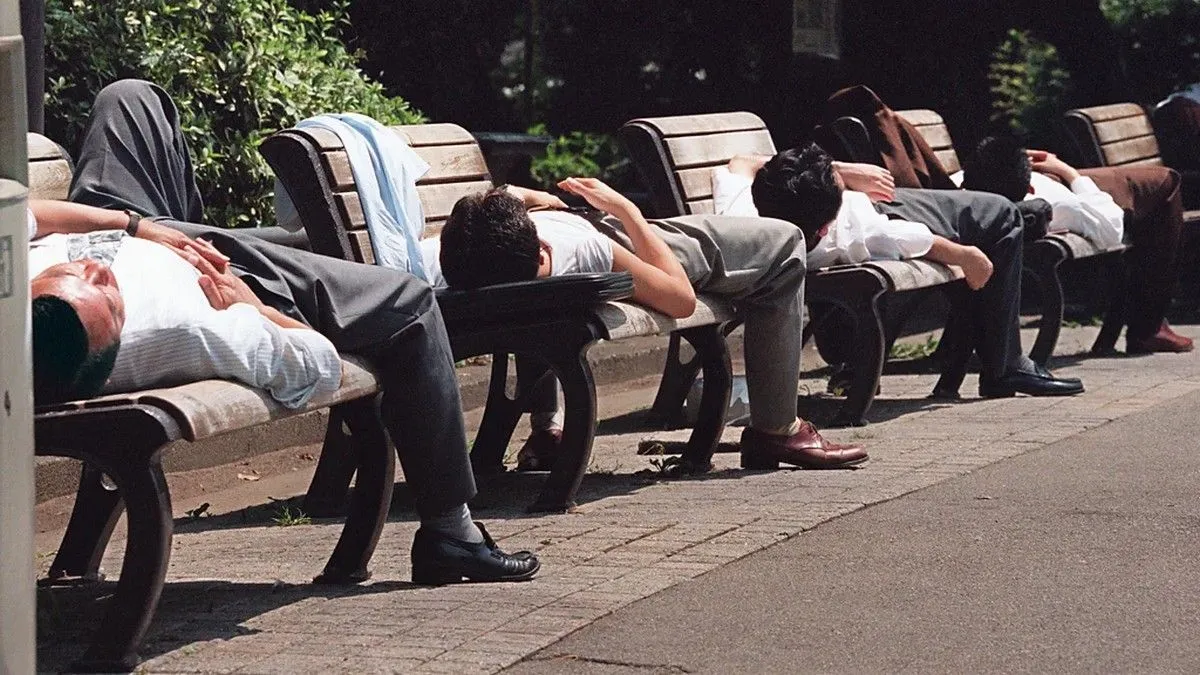
@izzygerretsen/bbc.com
With long hours and high demands, many take short naps to recharge and stay productive. While a midday snooze in a park is understandable, you might encounter people napping on the hard seats of public buses, slumped over desks in libraries, or even curled up on the floor of a shopping mall. It's a strange but fascinating adaptation to the pressures of modern life.
The Growing Middle Class and its Consumerism
China's rapidly growing middle class is a significant force in the country's economy. This burgeoning middle class has fueled a surge in consumerism, with a growing demand for luxury goods, travel, and entertainment.
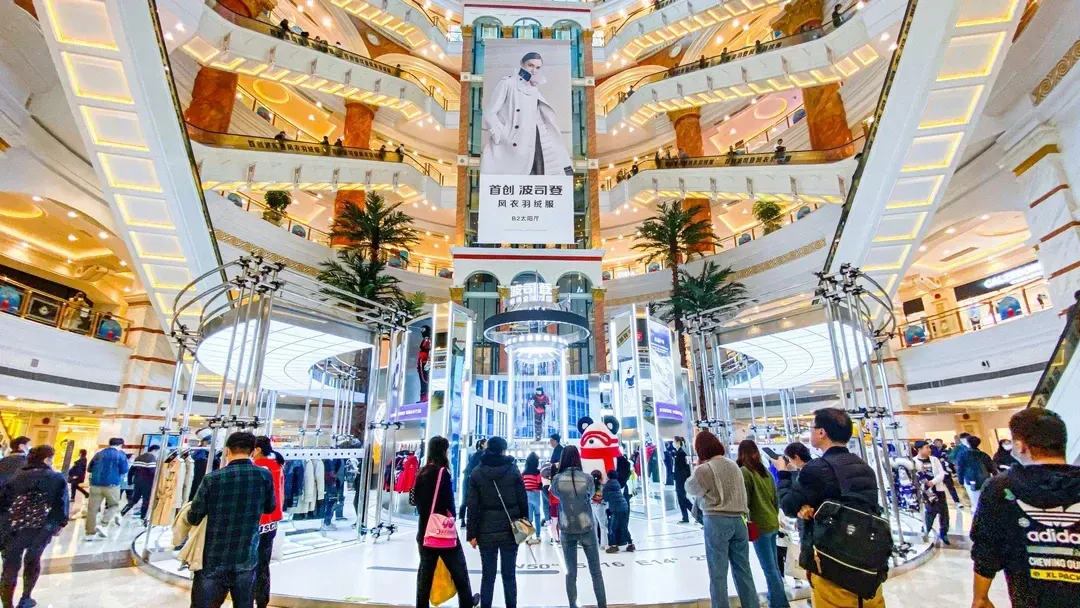
@glyn-atwal/jingdaily.com
This consumerism can be surprising to foreigners who might have preconceived notions about China being a more austere society. It's a sign of China's economic transformation and the increasing purchasing power of its citizens.
The Cultural Significance of Red
Red is a very auspicious color in Chinese culture. It symbolizes good luck, happiness, and prosperity. It's often used in decorations, clothing, and gifts, especially during festivals and celebrations.
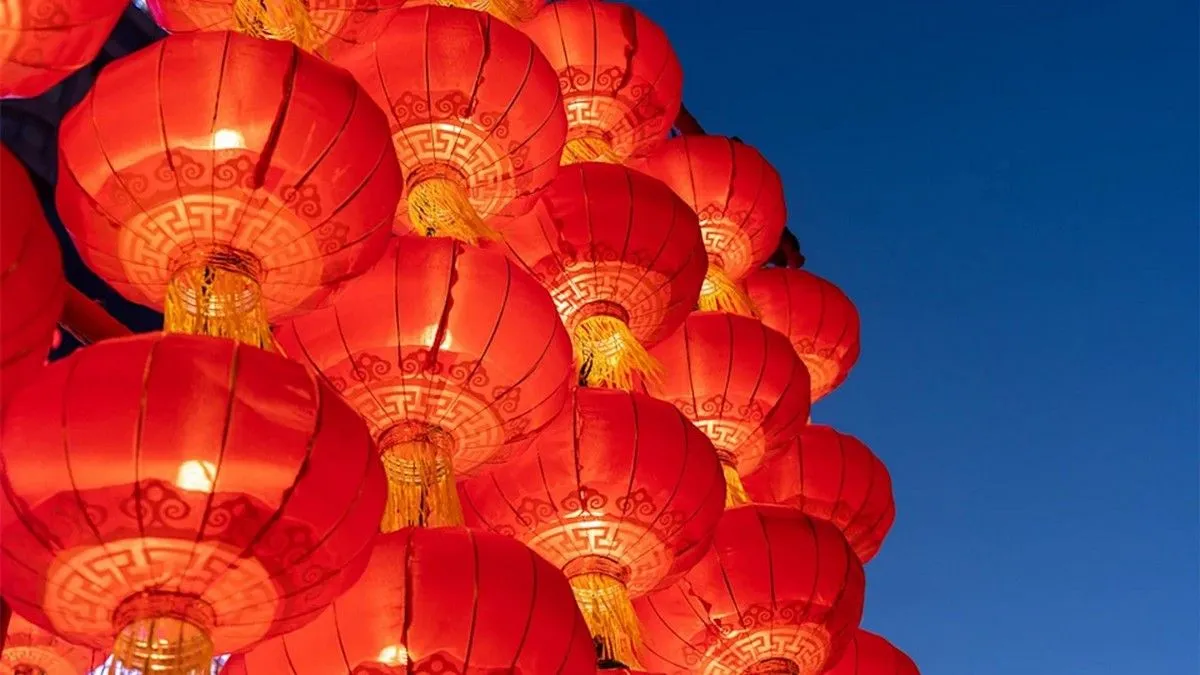
@Debbie Frank/hellomagazine.com
Red envelopes containing money are a traditional gift for special occasions. Be aware of the significance of red and its positive connotations. It's a color that is deeply embedded in Chinese culture and tradition.
Thriving after-school tutoring industry
Education is highly valued in China, and there is intense competition for places in good schools and universities. This has led to the proliferation of "tuition centers," or cram schools, where students receive extra tutoring after school hours.

@dale-john-wong/mashable.com
These centers are incredibly popular, and many students spend a significant amount of time attending them. This emphasis on academic achievement reflects the importance of education in Chinese society and the pressure to succeed.
Facekinis - a Reflection of Beauty Standards in China
One of the strangest sights you might encounter on Chinese beaches, particularly during the summer months, is the prevalence of "facekinis." These are full-face masks, often brightly colored and patterned, worn by swimmers to protect their skin from the sun. While sun protection is a valid concern, the appearance of these masks can be quite startling to foreigners.

@Facekinis Trending In China As Temperatures Rise/bay.com.mt
They cover the entire face, leaving only the eyes, nose, and mouth exposed. The facekini trend highlights the cultural emphasis on maintaining a fair complexion, which is often seen as a sign of beauty and social status. It's a practical solution to a specific concern but the unusual appearance makes them a unique and somewhat bizarre cultural phenomenon.
China's Public Dance Phenomenon
A common and joyful sight in China is the prevalence of public dance groups. In parks and squares across the country, people of all ages gather to dance together, often to traditional music played on portable speakers. These impromptu dance parties are more than just exercise; they're a vibrant social activity.
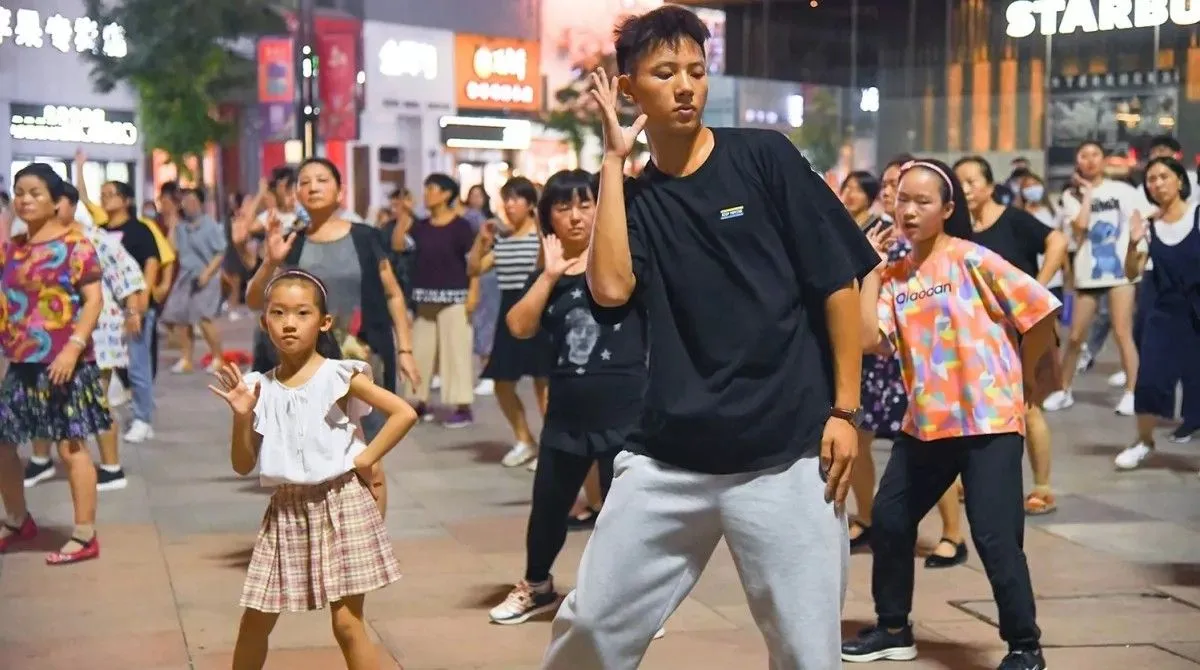
@ChinaDaily/x.com
Participants build community, stay active, and enjoy the camaraderie. It's a wonderful way to experience Chinese culture firsthand, and visitors are often welcome to join in the fun. From synchronized moves to free-flowing styles, these public dance groups are a testament to the importance of community and well-being in Chinese society.
The Variety of Chinese Languages (Dialects)
Many foreigners assume everyone in China speaks the same language but this couldn't be further from the truth. While Mandarin Chinese is the official language, a vast array of dialects are spoken throughout the country. These aren't just slight variations; they are distinct linguistic systems, some with more speakers than many European languages.
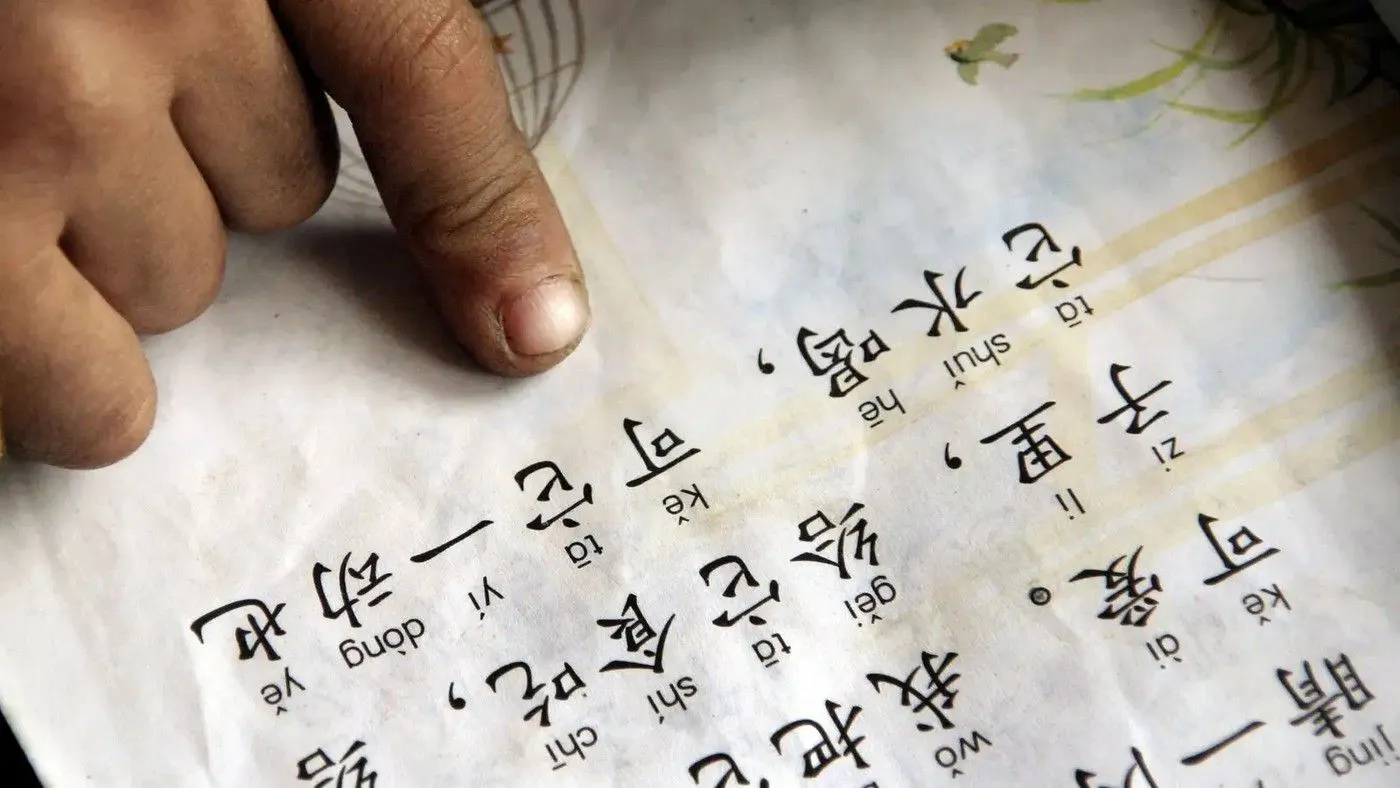
@Visen Liu/qz.com
From Cantonese in the south to the Wu dialects of Shanghai, the range is astounding. This linguistic diversity often surprises visitors. Imagine ordering food and being met with a completely unfamiliar tongue, despite thinking you're speaking "Chinese."
The Scorching Heat and Air Conditioning Practices
China's summers can be intensely hot and humid, with temperatures soaring above 100°F (38°C). Even so, air conditioning in China can be a unique experience for visitors. While modern establishments often offer comfortable temperatures, it's not always a guarantee.
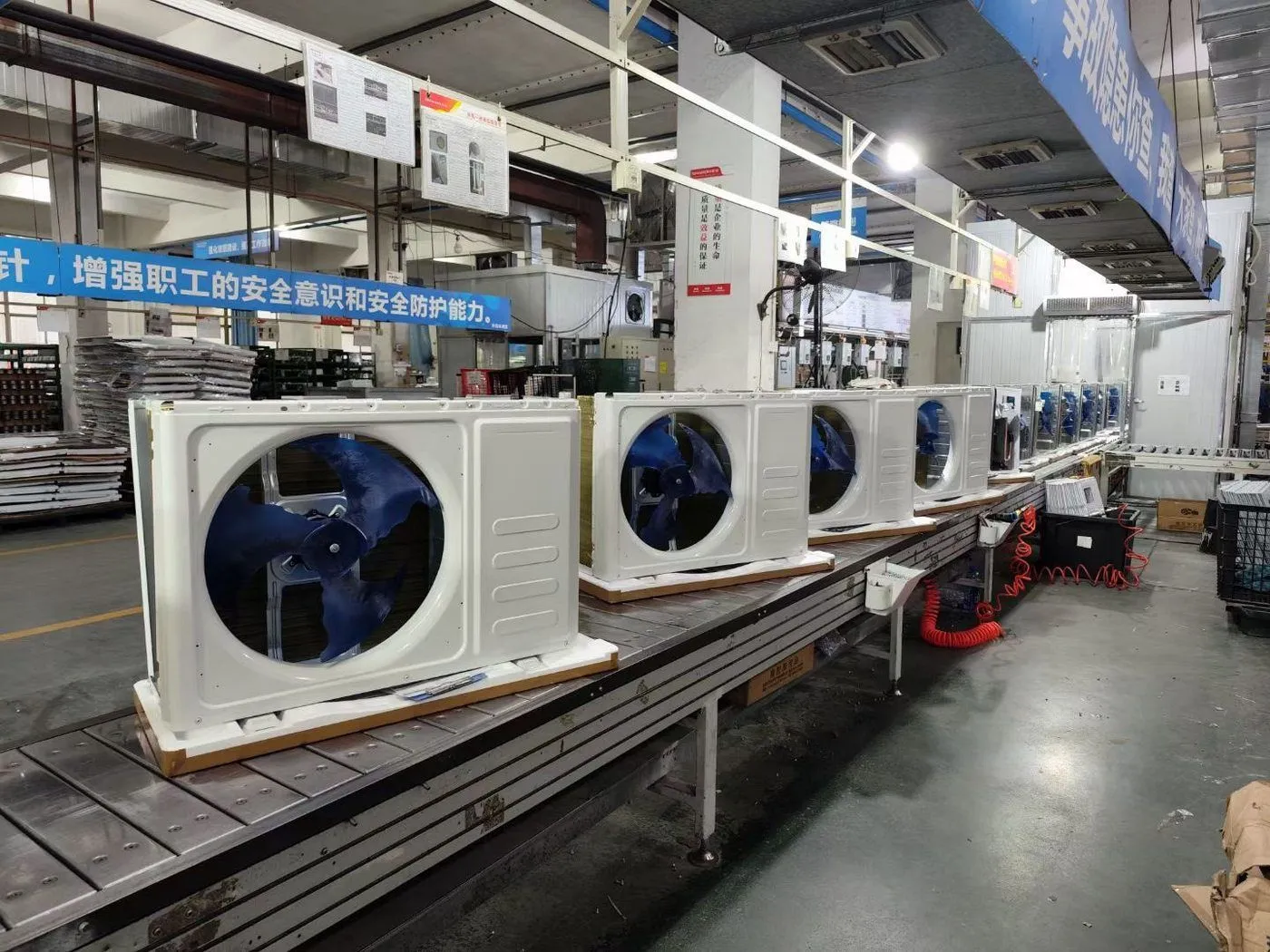
@michael32343665/x.com
Some places, particularly smaller restaurants or older buildings, may have less powerful AC units, or they might be used more sparingly due to energy conservation. And sometimes the air conditioning is not turned on until the room is occupied. Don't be surprised if the temperature feels warmer than what you're accustomed to.
The Power of WeChat
WeChat is more than just a messaging app in China; it's a way of life. It's used for everything from communication and social networking to mobile payments, ordering food, booking taxis, and even paying utility bills. For many Chinese people, WeChat is an essential tool for navigating daily life.

@China’s Tencent wants to expand its presence in Singapore/cnbc.com
Foreigners visiting or living in China will quickly realize the importance of WeChat and how it permeates nearly every aspect of modern Chinese society. Setting up a WeChat account is highly recommended, as it will make communication and many other tasks much easier. WeChat's multifaceted functionality makes it a truly unique platform, unlike anything seen in many other parts of the world.
Primitive Waste Disposal Methods
In less developed parts of China, trash dumpsters often lack the sophistication seen in modern cities. Instead of organized bins or advanced waste management systems, dumpsters may simply be open sheds or piles where residents discard their garbage.
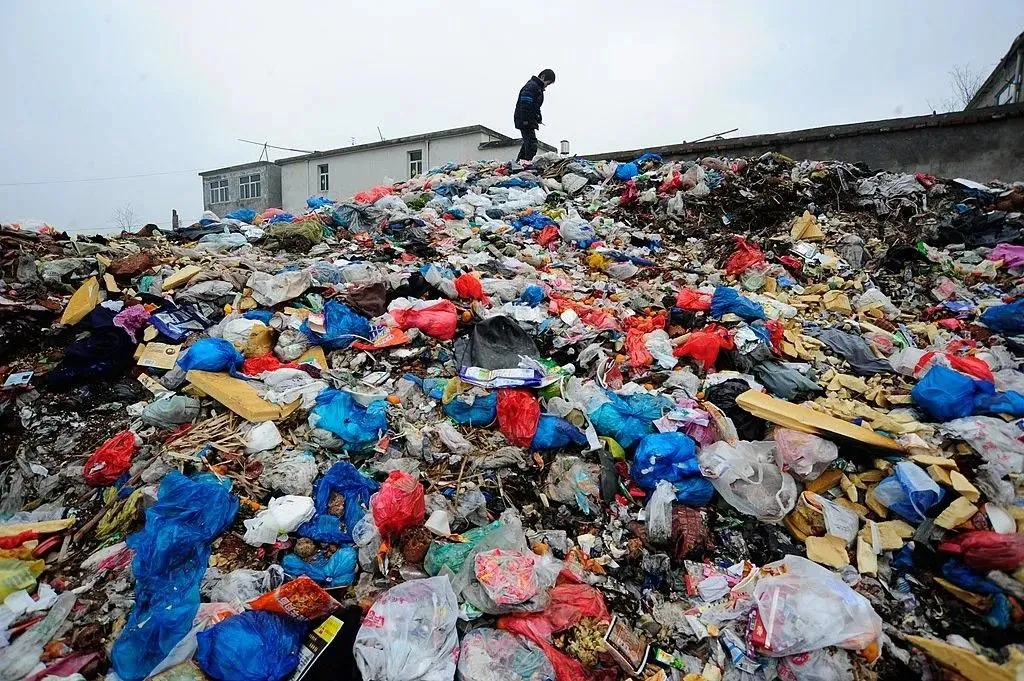
@China Once Welcomed the World’s Trash/fortune.com
Recycling is often informal, with individuals sorting through the trash to collect valuable materials like plastic, metal, and paper. The sight of scattered trash and the reliance on manual sorting can be surprising to visitors but it also underscores the resilience and adaptability of local communities.
The Ubiquity of Tea Culture
Tea is an integral part of Chinese culture, and you'll encounter it everywhere you go. From formal tea ceremonies to casual gatherings, tea is a constant presence. The variety of teas is astounding, and the rituals surrounding tea preparation can be quite elaborate.
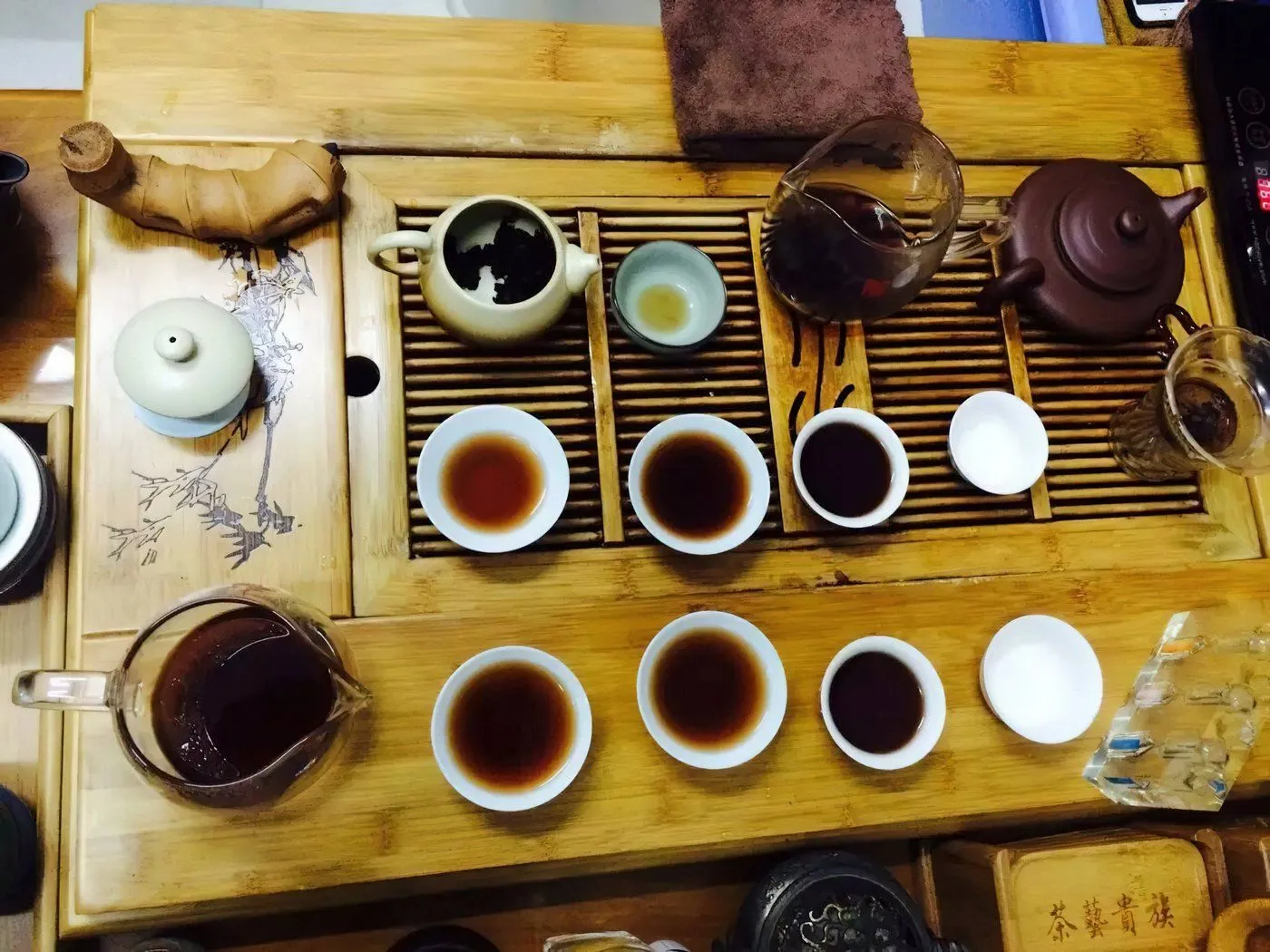
@The Tea Ceremony/theautumnsalon.com
Be prepared to be offered tea frequently, and learn a few basic customs, such as how to hold your teacup and express appreciation. Tea is not just a beverage; it's a symbol of hospitality and a way to connect with others.
The Integration of Nature into Urban Design
Chinese garden design principles often influence urban planning, with an emphasis on integrating nature into the urban environment. The concept of "borrowed scenery" involves incorporating elements of the surrounding landscape into the design of a garden or building.

@New Garden City, blending architecture into the natural landscape/theplan.it
This approach creates a sense of harmony between the built environment and the natural world. It reflects a deep appreciation for nature and a desire to create spaces that are both beautiful and functional.
The Lack of Toilet Paper in Public Bathrooms
Navigating public restrooms in China requires a little preparation. While the situation is improving in larger cities and tourist areas, it's still common for public toilets to lack toilet paper. Therefore, it's a wise traveler's habit to carry a small pack of tissues or wet wipes. This simple precaution can save you from an awkward situation.
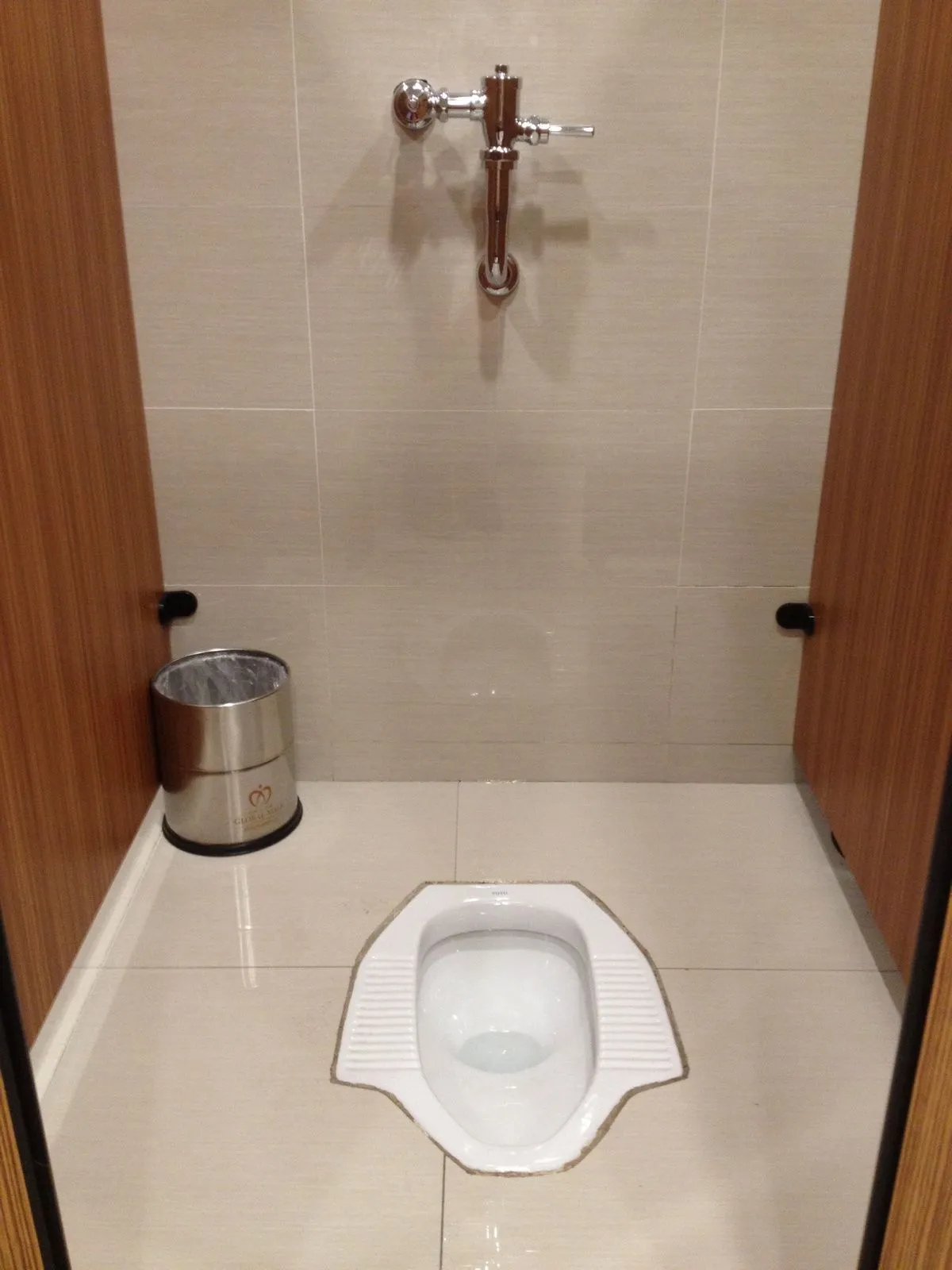
@jameliam/galsgotmoxie.com
Don't assume that toilet paper will be provided, even in seemingly well-maintained facilities. Being prepared ensures a more comfortable and hygienic experience, allowing you to focus on enjoying your travels rather than scrambling for a non-existent necessity. So, remember the golden rule: Bring Your Own Toilet Paper!
The Ubiquitous Use of Umbrellas
Umbrellas are an essential accessory in China, used not only for rain but also for protection from the sun. The sun can be quite strong, especially during the summer months, and many Chinese people use umbrellas to shield themselves from the harmful UV rays. This can be surprising for foreigners who are accustomed to using umbrellas primarily for rain.
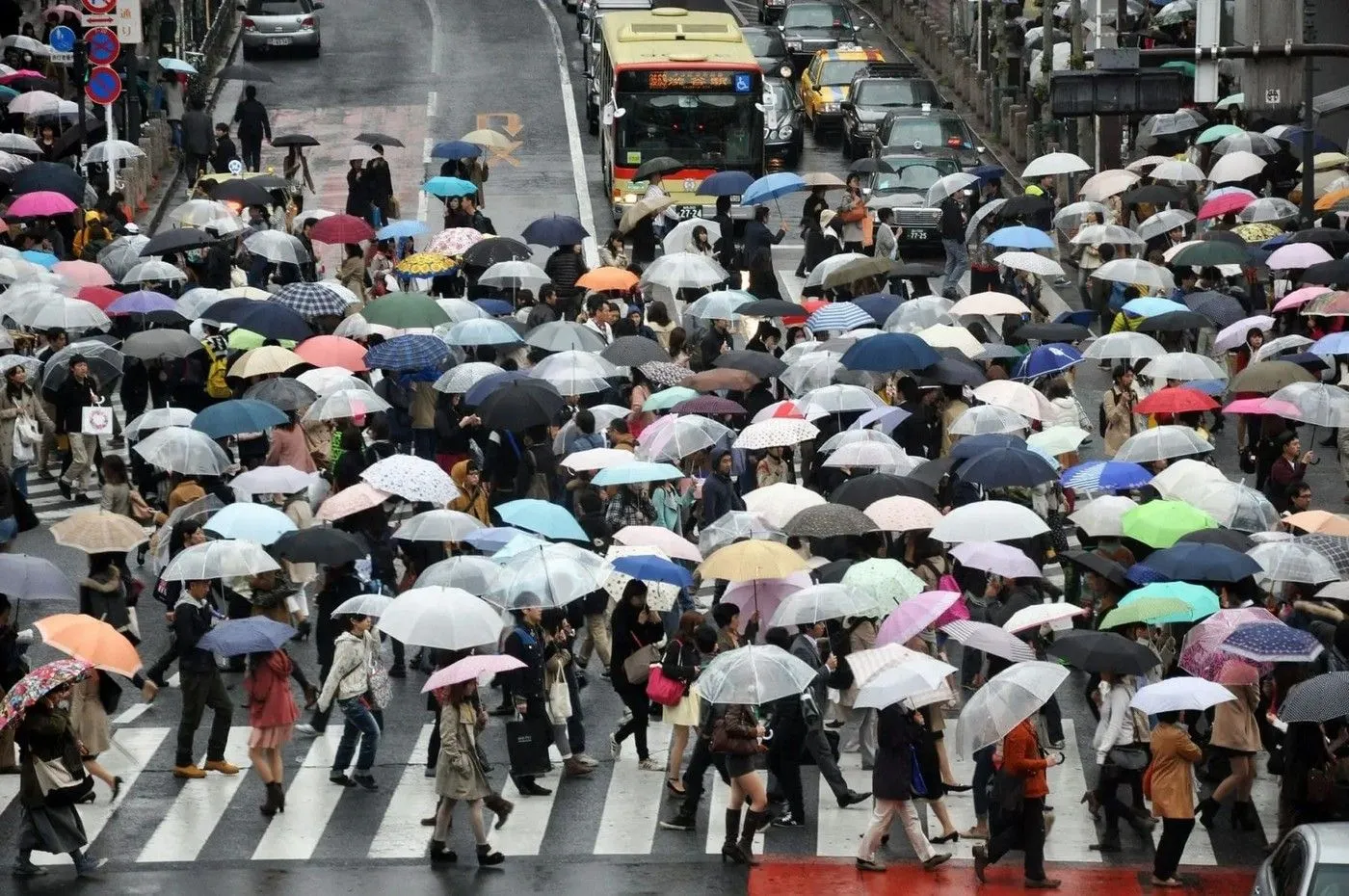
@Umbrellas and their use around the world/parapluiedecherbourg.com
Seeing people using umbrellas on sunny days is a common sight in China. It reflects a cultural awareness of the potential dangers of sun exposure and a preference for maintaining a lighter complexion. Don't be surprised to see a sea of umbrellas on a sunny day, especially in crowded areas.
Traditional Chinese Medicine
Traditional Chinese Medicine is a system of healthcare that has been practiced in China for thousands of years. It encompasses a variety of practices, including acupuncture, herbal medicine, and tai chi. TCM is still widely practiced in China today.

@International symposium on traditional Chinese, Unani medicines held/app.com.pk
It is often used alongside Western medicine. Understanding the principles of TCM provides insight into a different approach to health and well-being. It's a complex system with a long history and continues to play a significant role in Chinese healthcare.
Public Calligraphy Practice
You might see people practicing calligraphy with large brushes and water on sidewalks or in parks. This is a common sight in China, particularly among older generations. It's a way to practice calligraphy without wasting ink and paper. The water evaporates, leaving no trace.
@anartteacherinchina/blogspot.com
This practice reflects the enduring appreciation for calligraphy as an art form and a way to cultivate mindfulness and discipline. Appreciating Chinese calligraphy requires an understanding of the different styles and techniques. It's a skill that takes years to master and reflects the rich artistic traditions of China. Calligraphy is more than just writing; it's an expression of cultural heritage.
Family's Devotion to Education and Nourishment
Chinese families prioritize education, often making significant sacrifices to support their children's academic success. The desire to provide home-cooked meals is also deeply ingrained, with many believing it's crucial for a child's well-being. Families often choose to live closer to the school or rely on relatives for meal preparation.
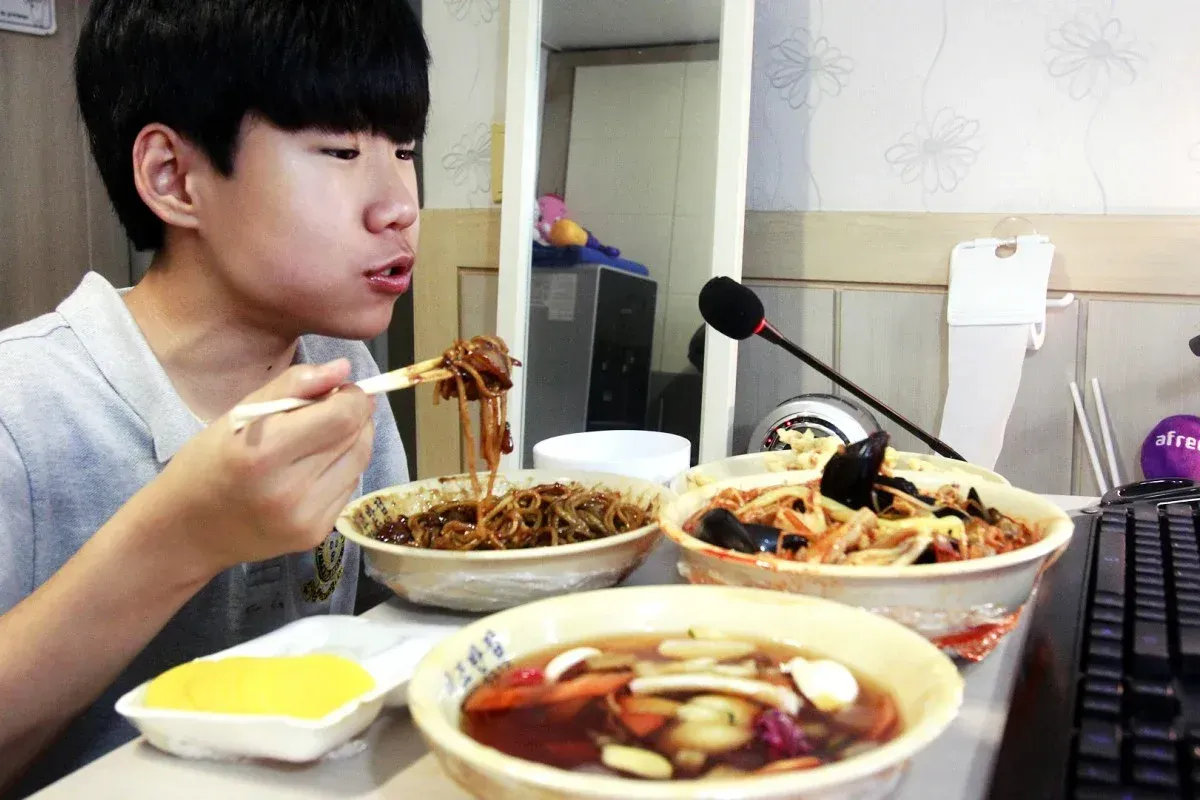
@xinhyeeFZL/facebook.com
In some cases, wealthy families in China purchase or rent small, modest properties near prestigious schools to ensure their children can attend those schools and enjoy conveniences like home-cooked lunches. This practice is often driven by the competitive nature of the education system and the desire to give their children an advantage.
The Popularity of Night Markets
Night markets are a vibrant and exciting part of Chinese culture. They are open-air markets that operate at night, offering a wide variety of goods, from street food and clothing to souvenirs and electronics. Exploring a night market is a must-do for any visitor to China.
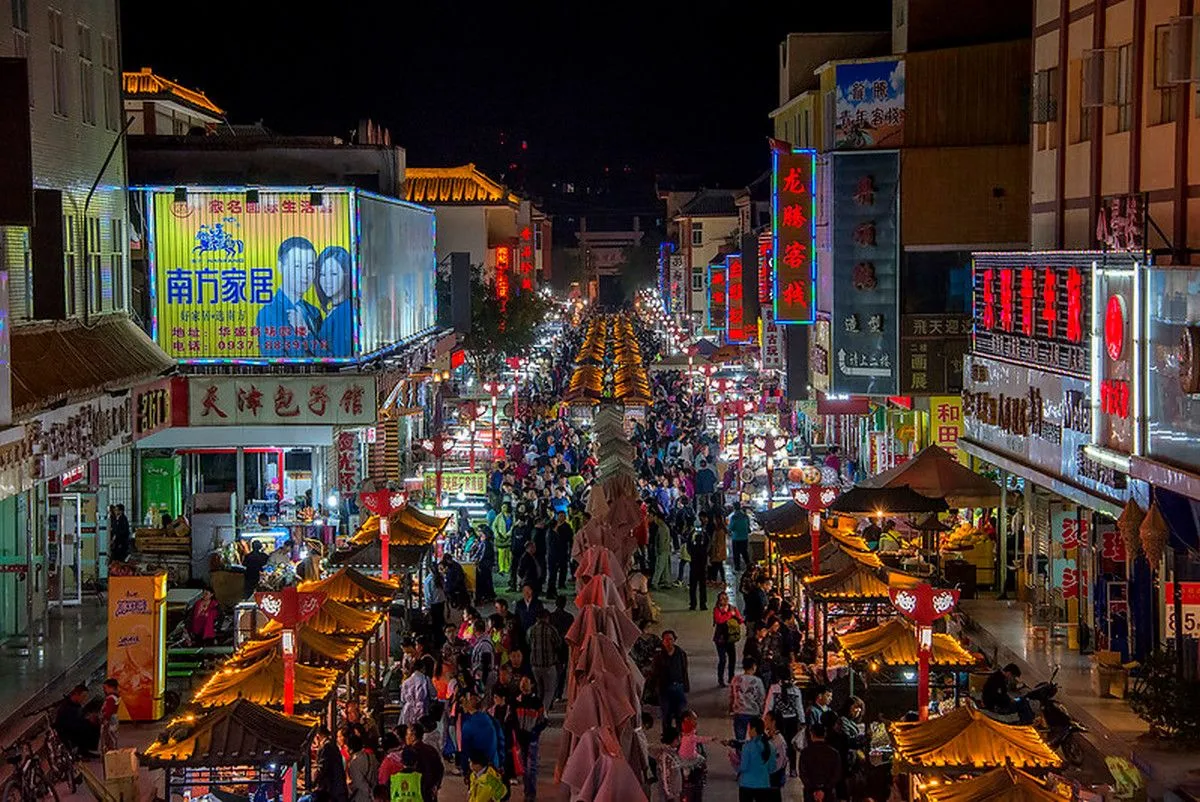
@globetrekimages/flickr.com
It's a great way to experience local culture and try some delicious street food. The lively atmosphere and the sheer variety of goods make night markets a truly unique experience.